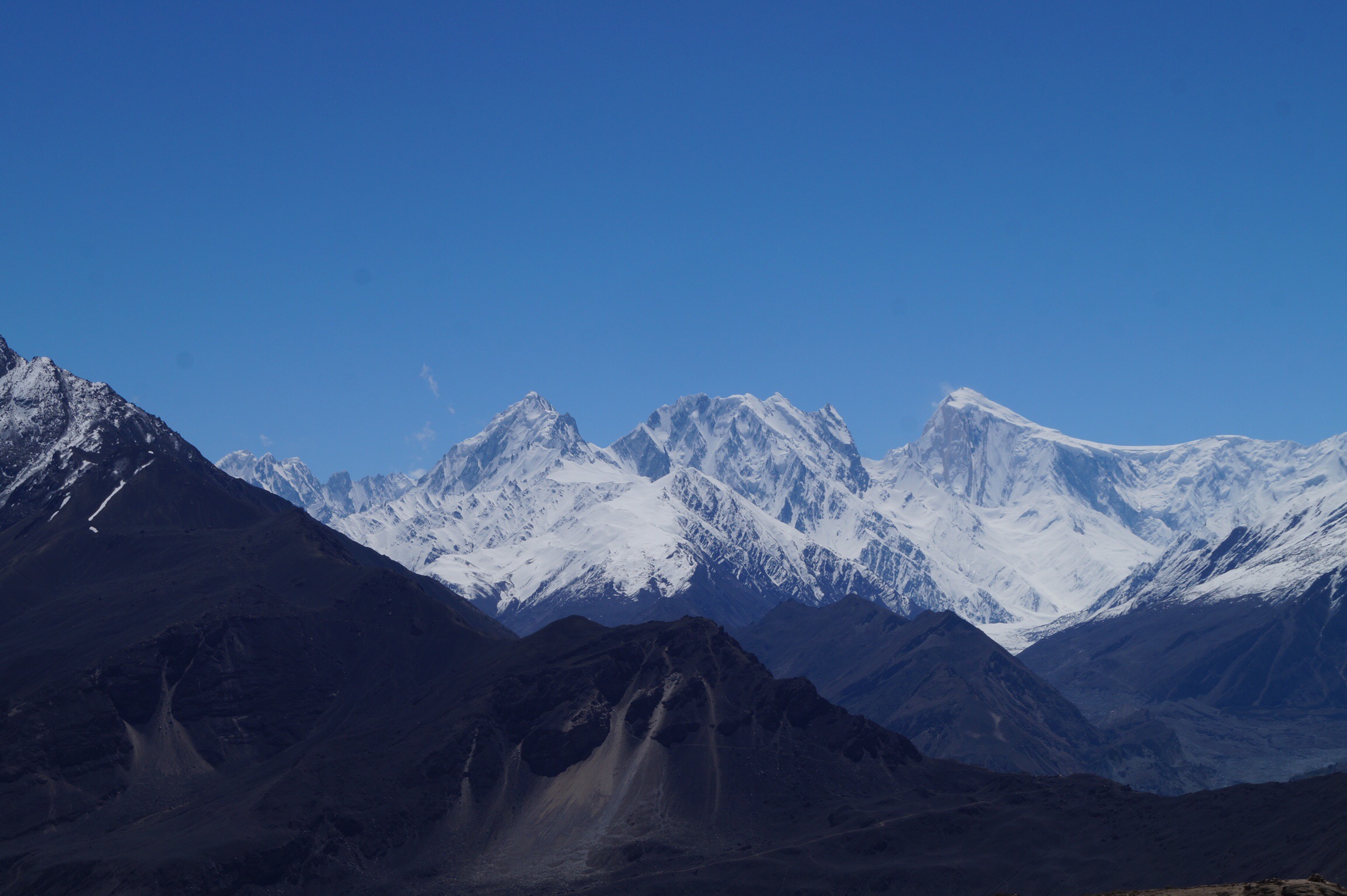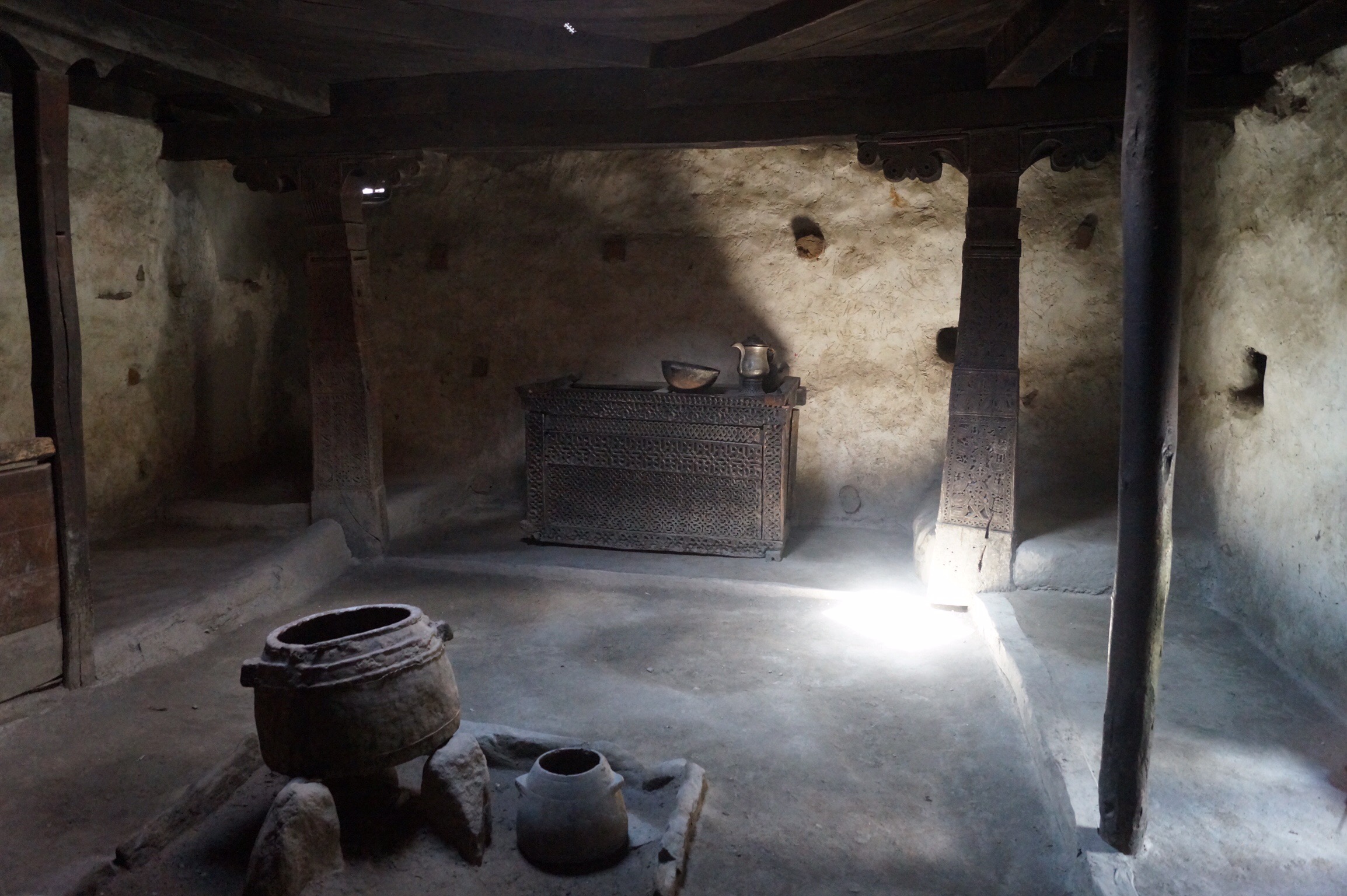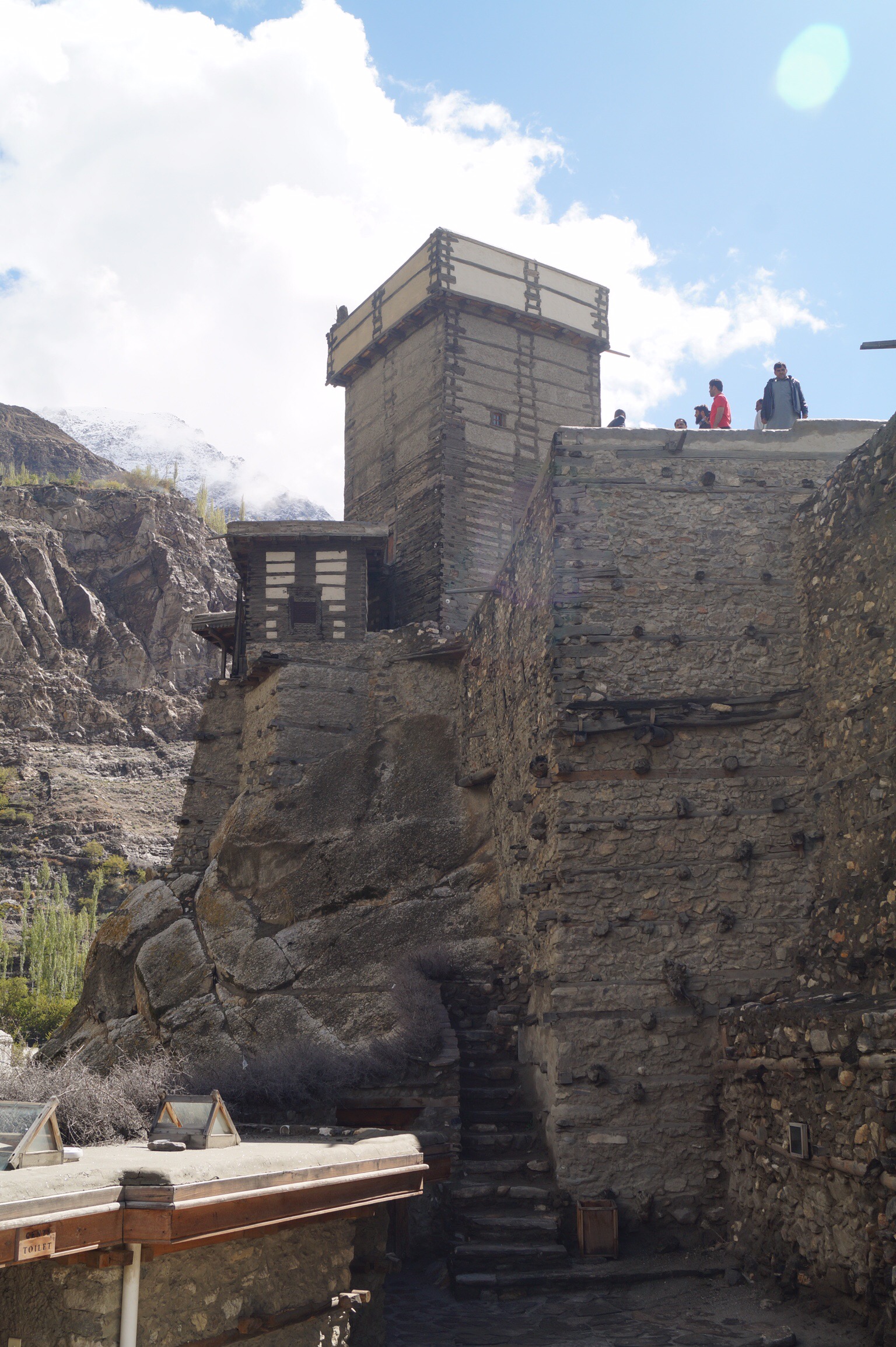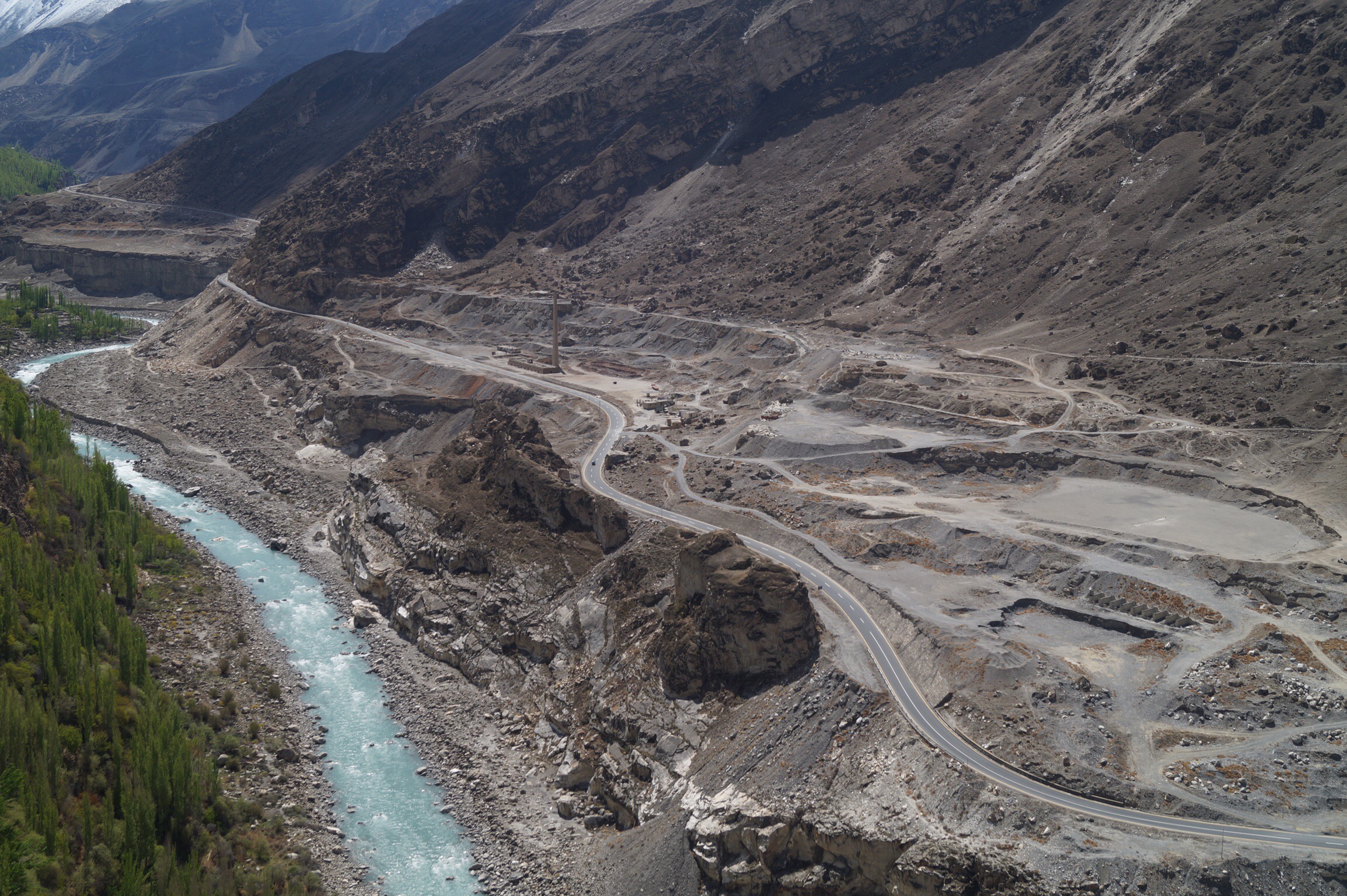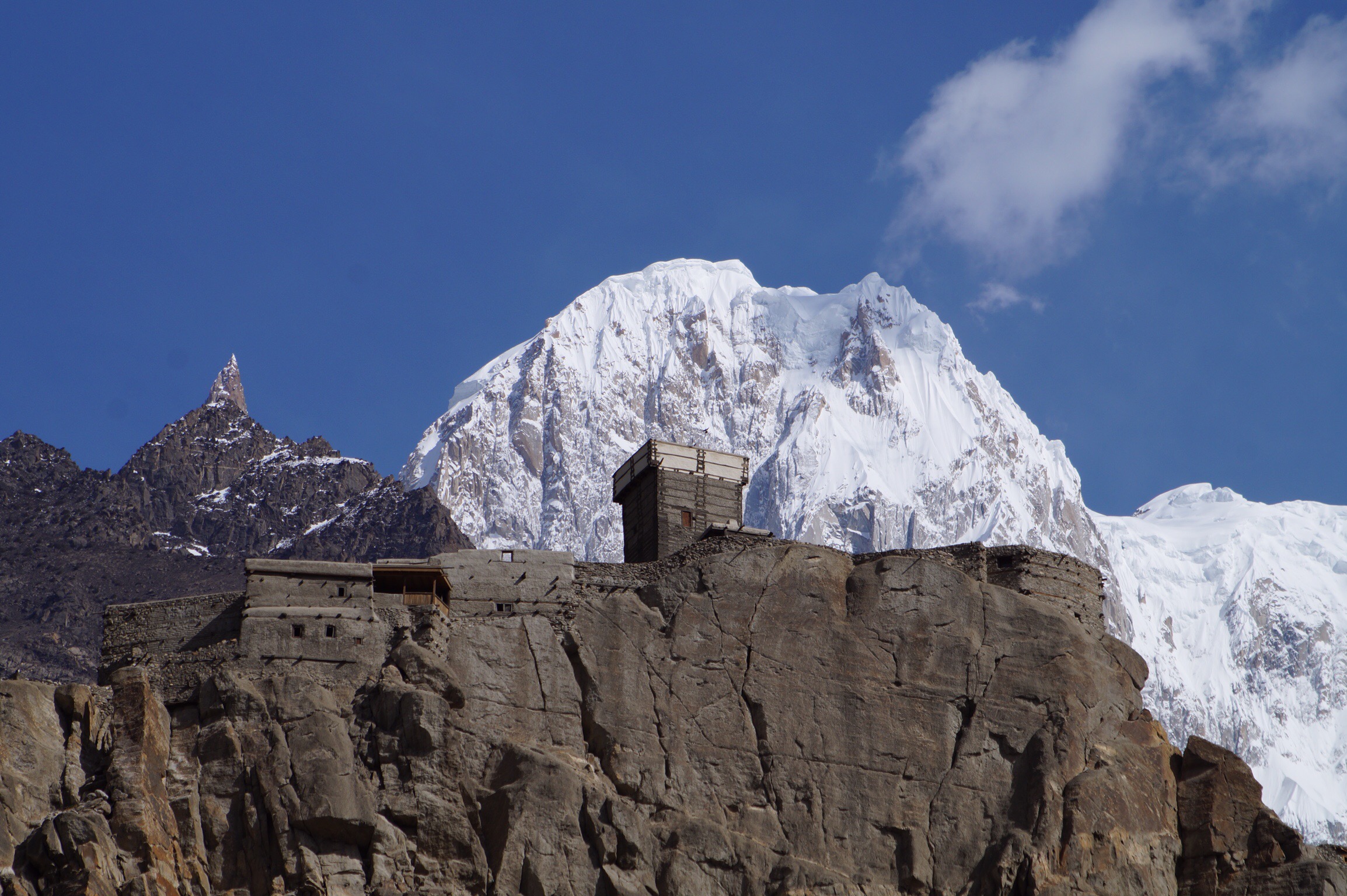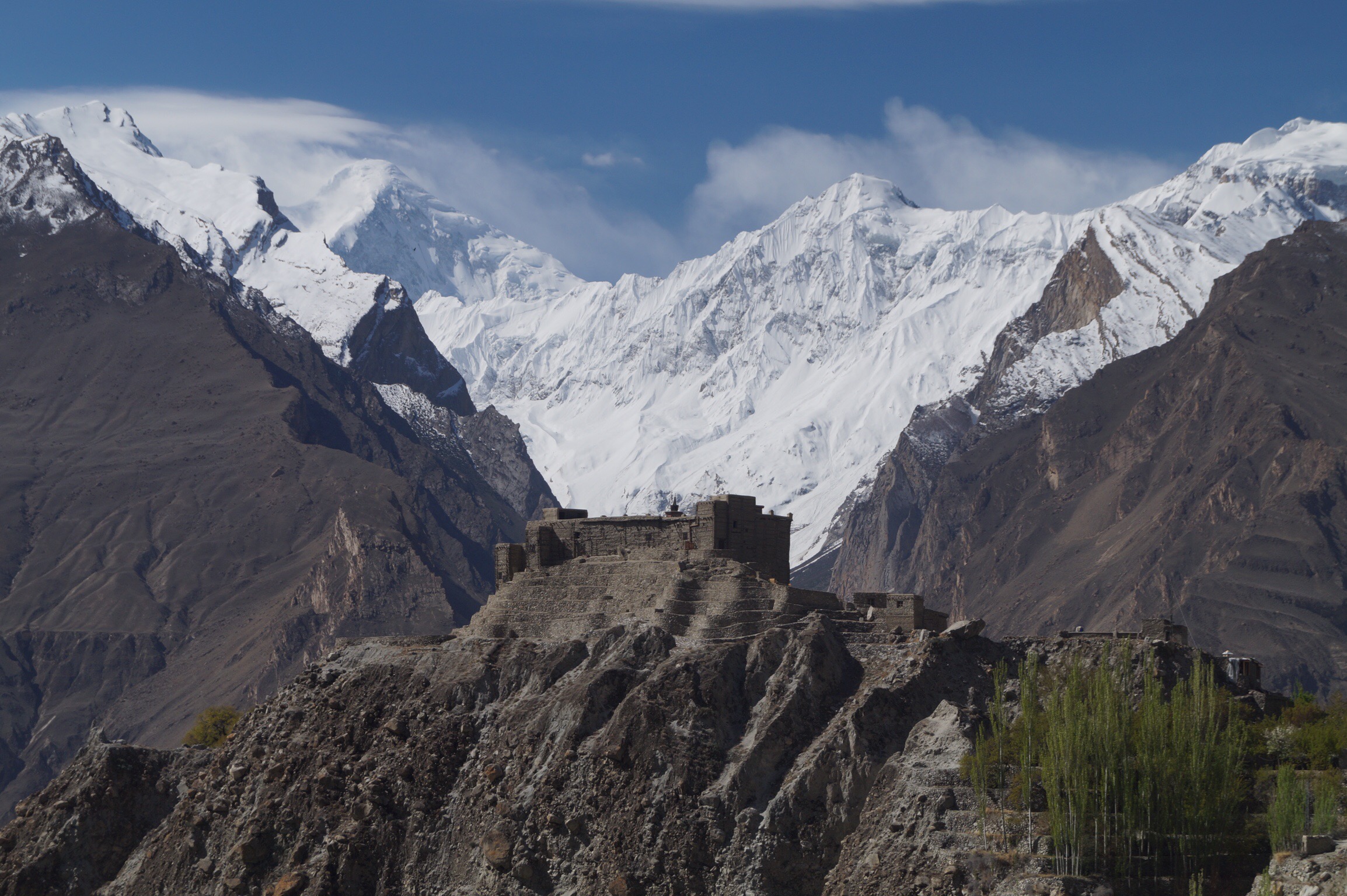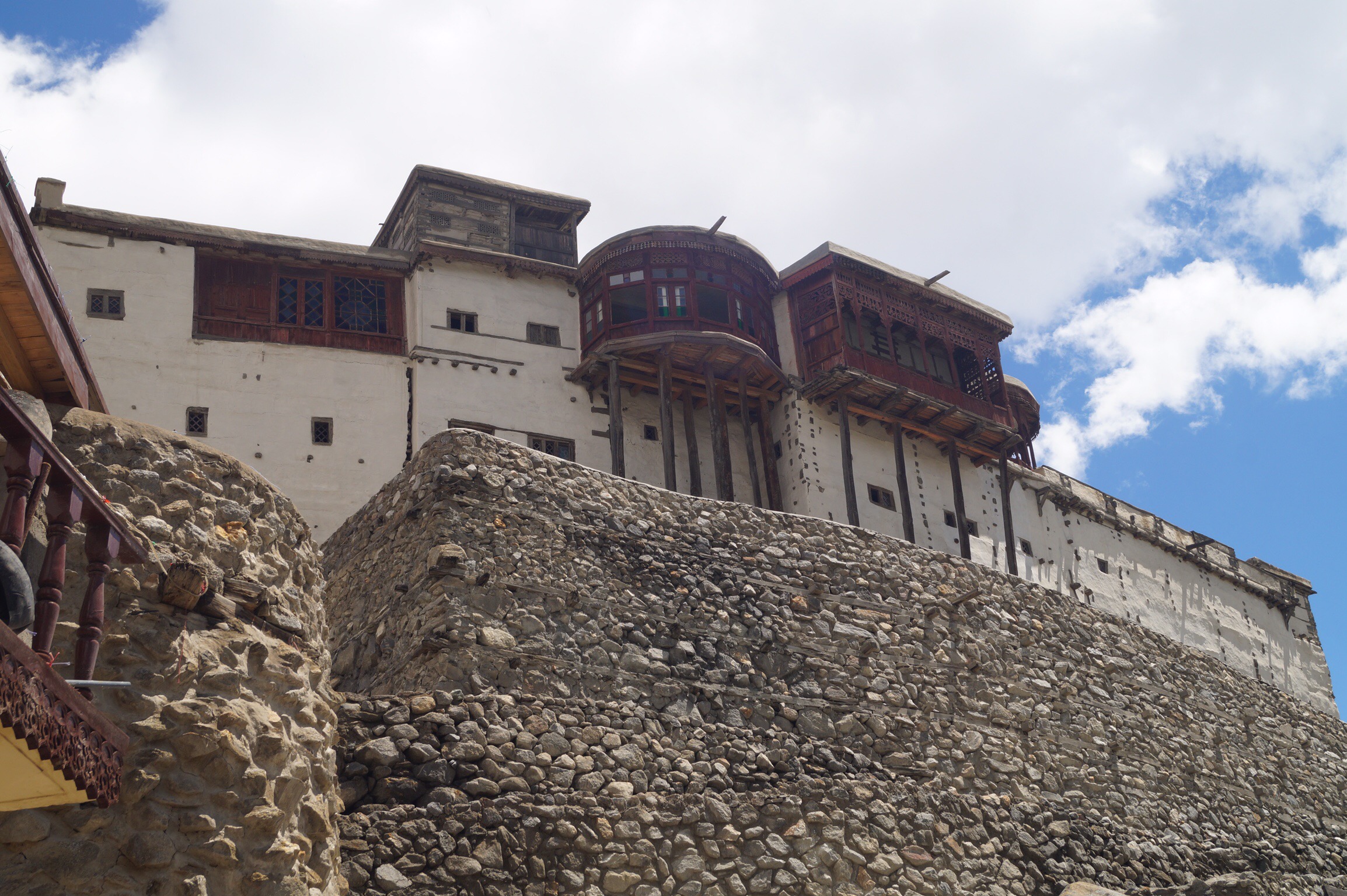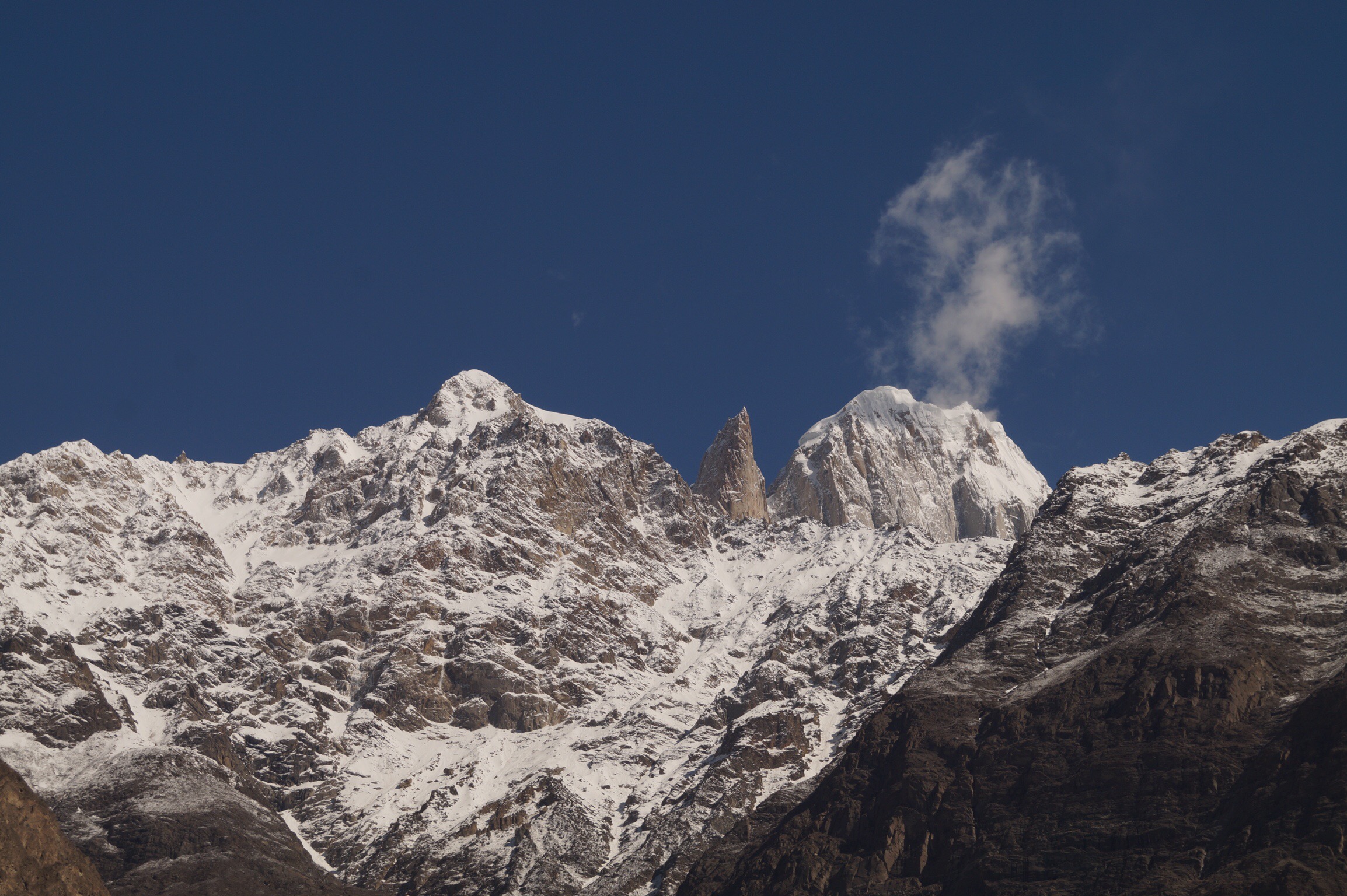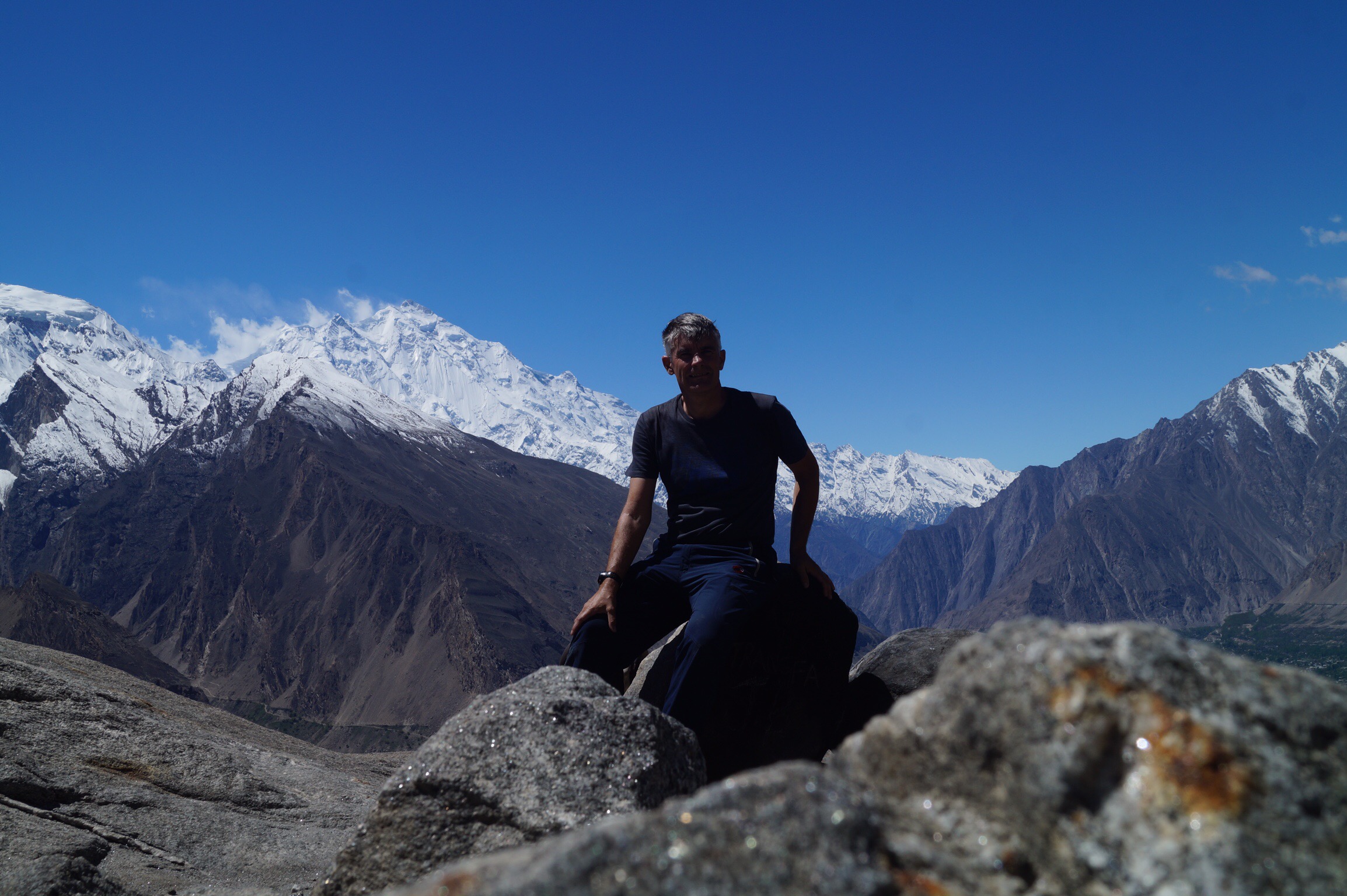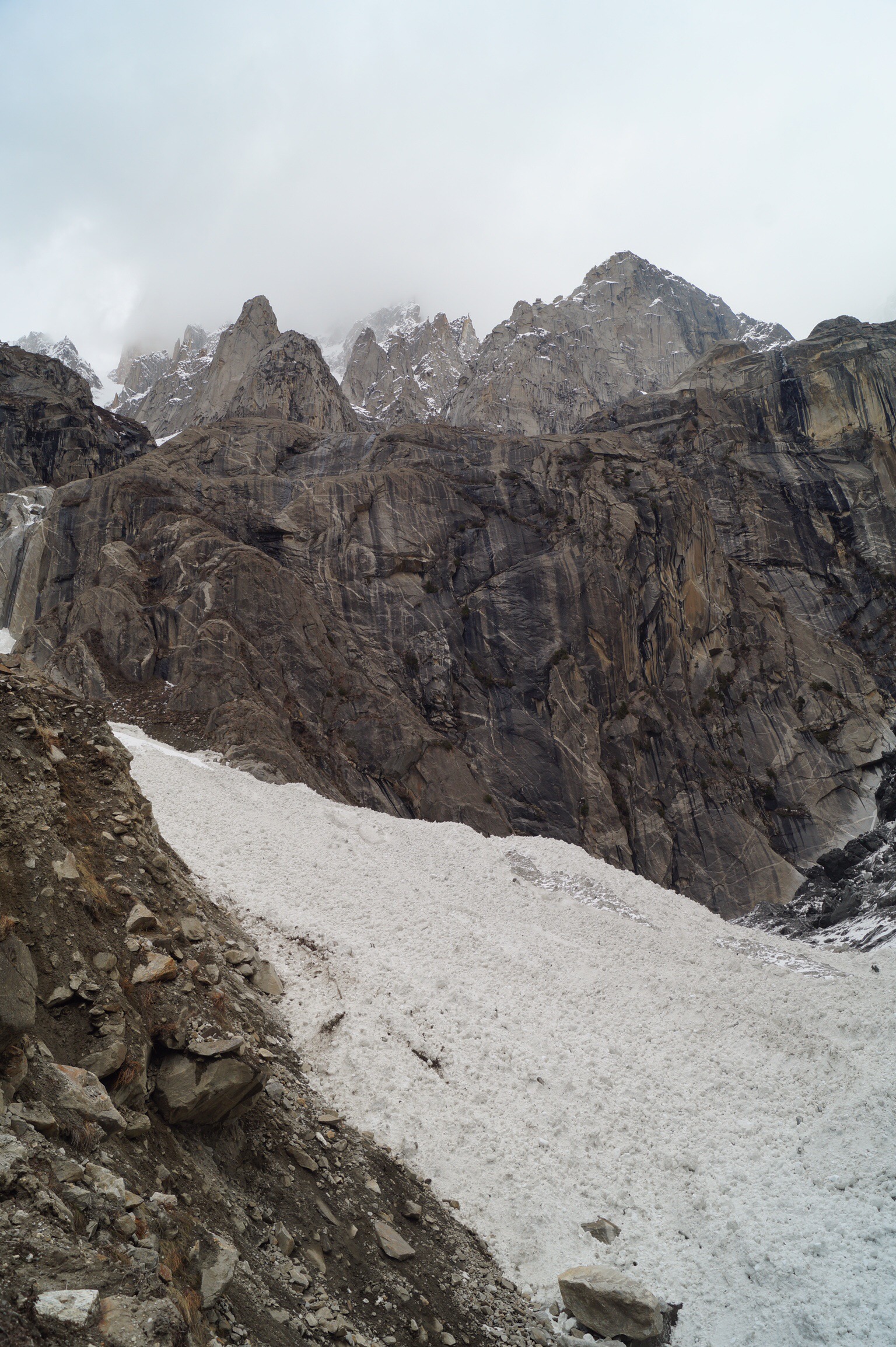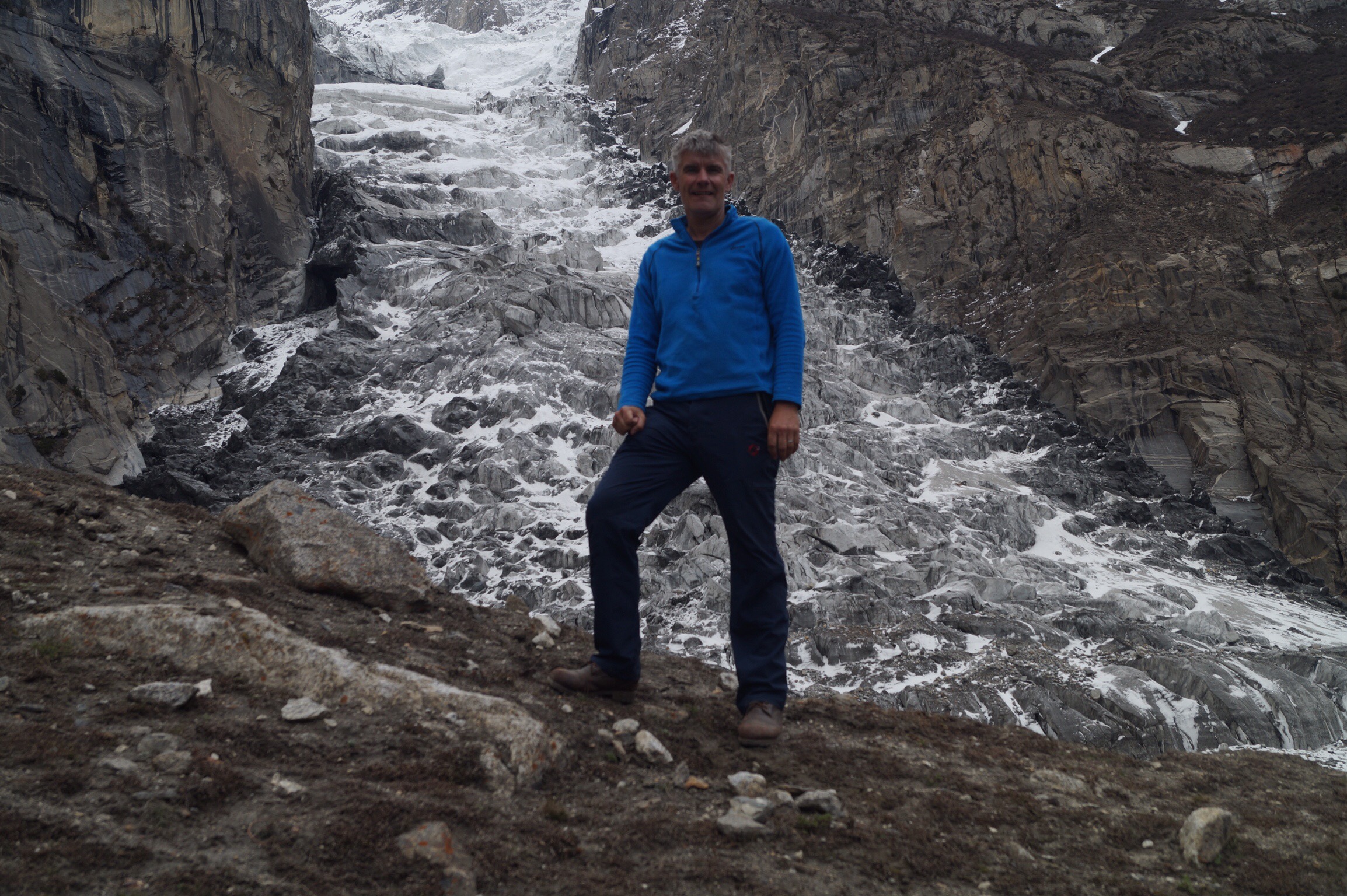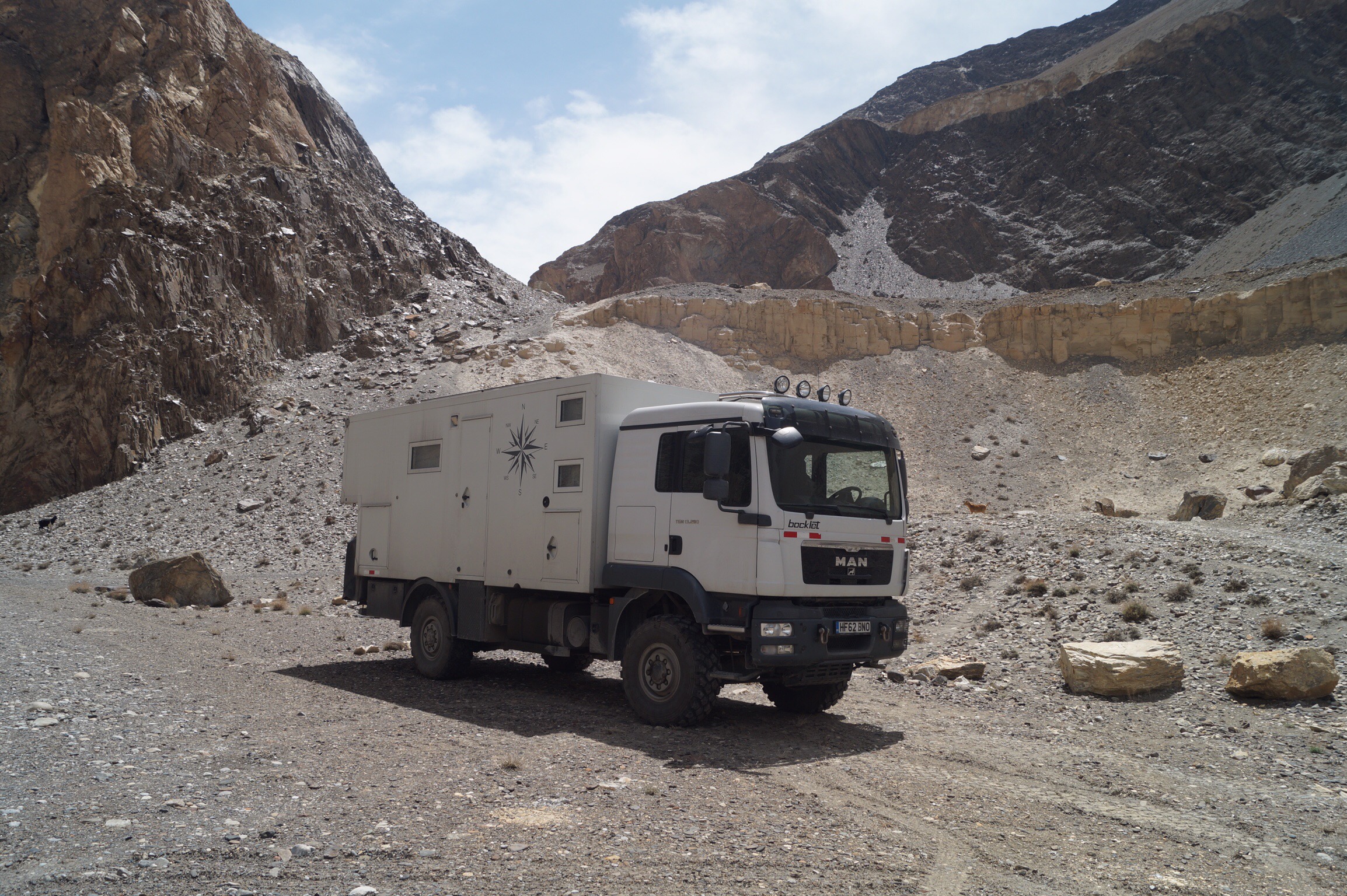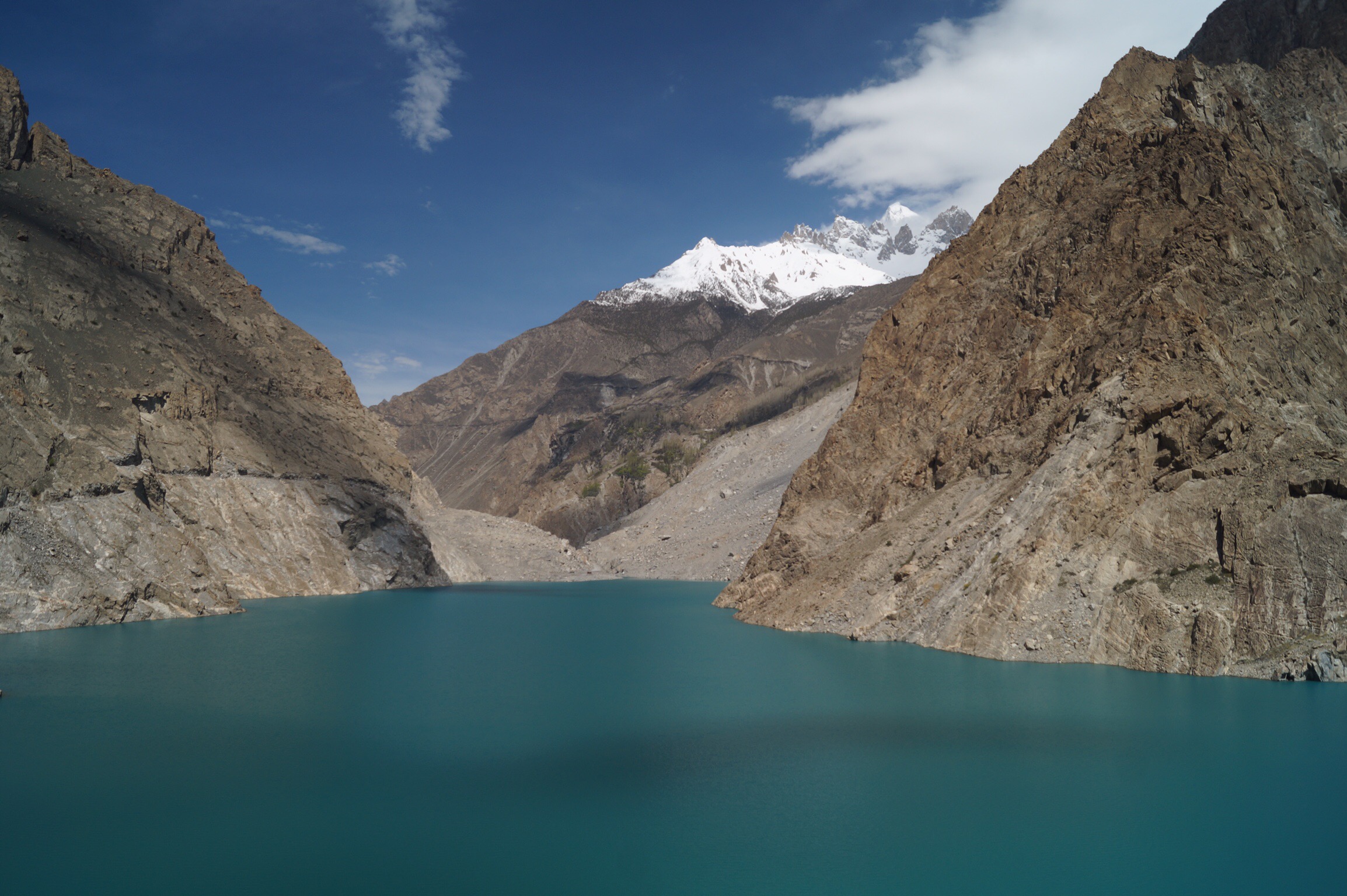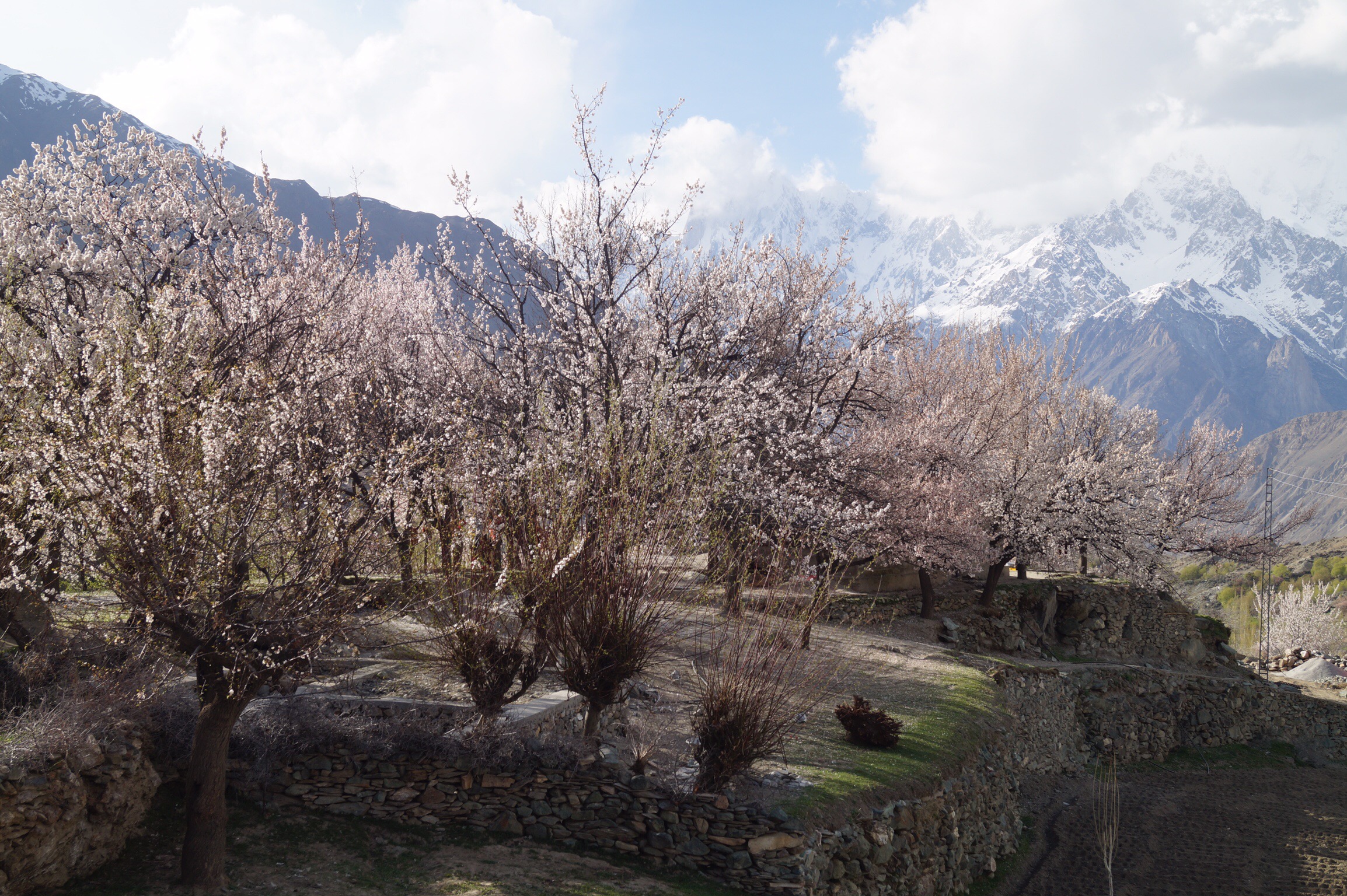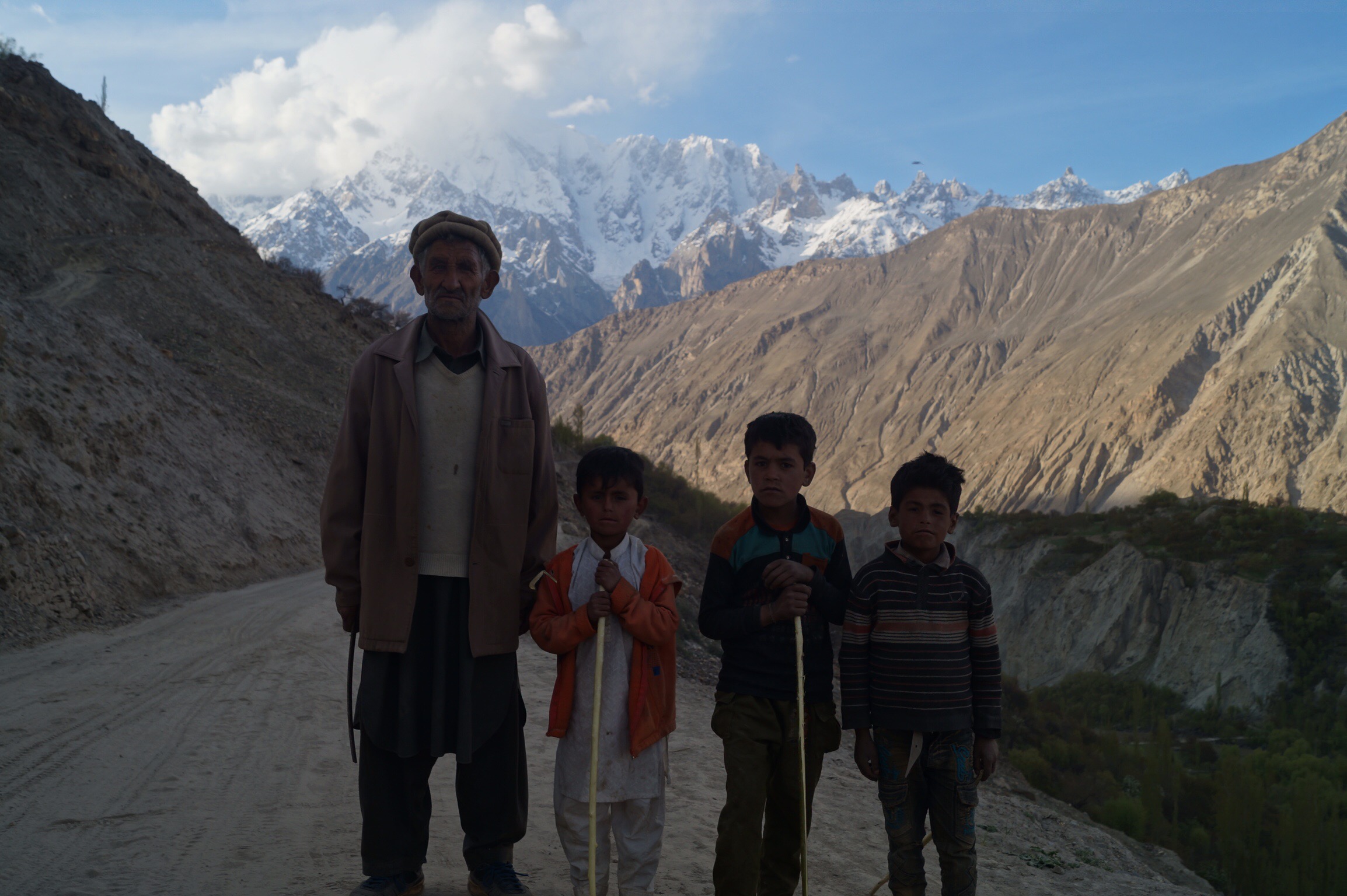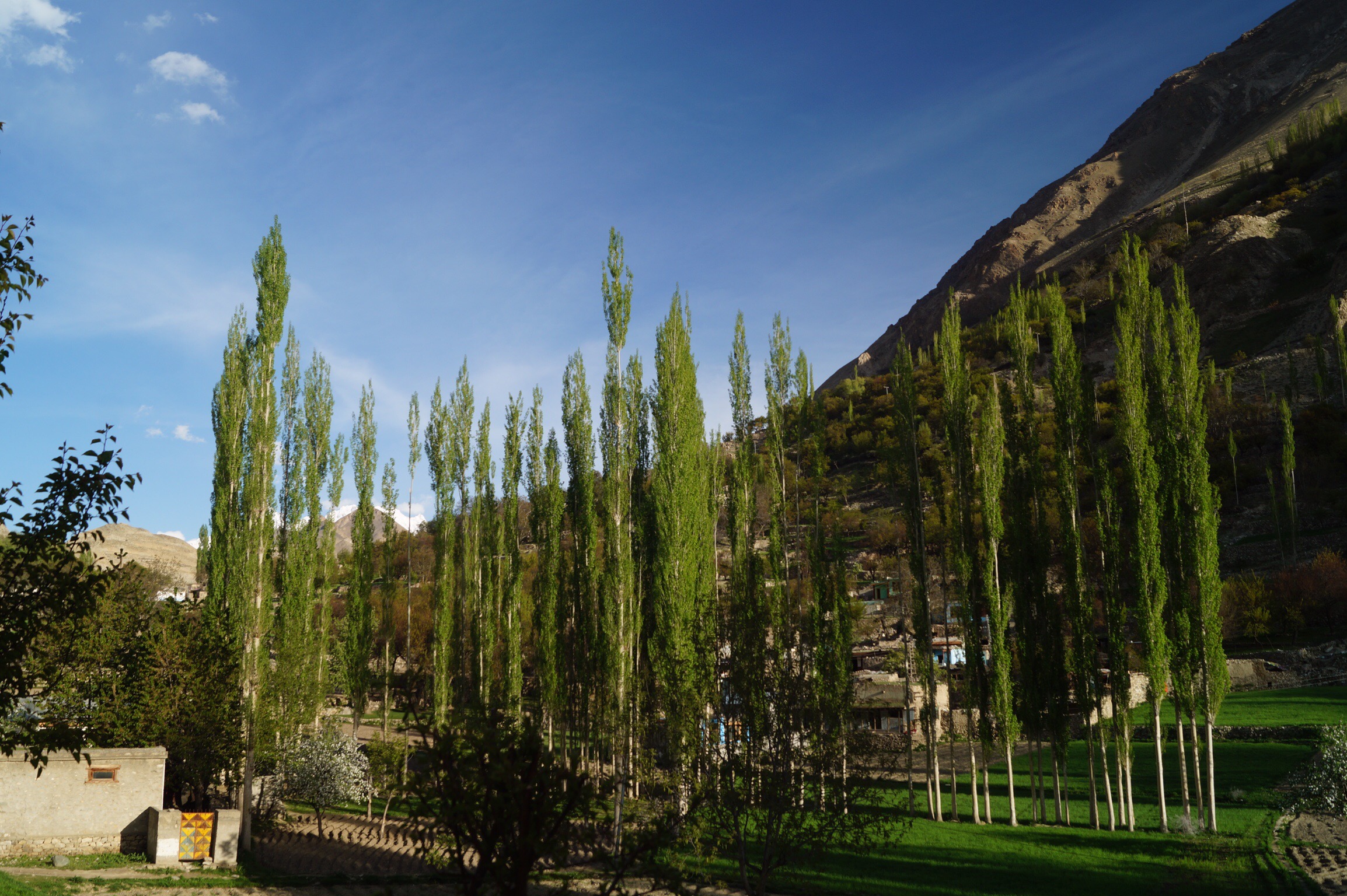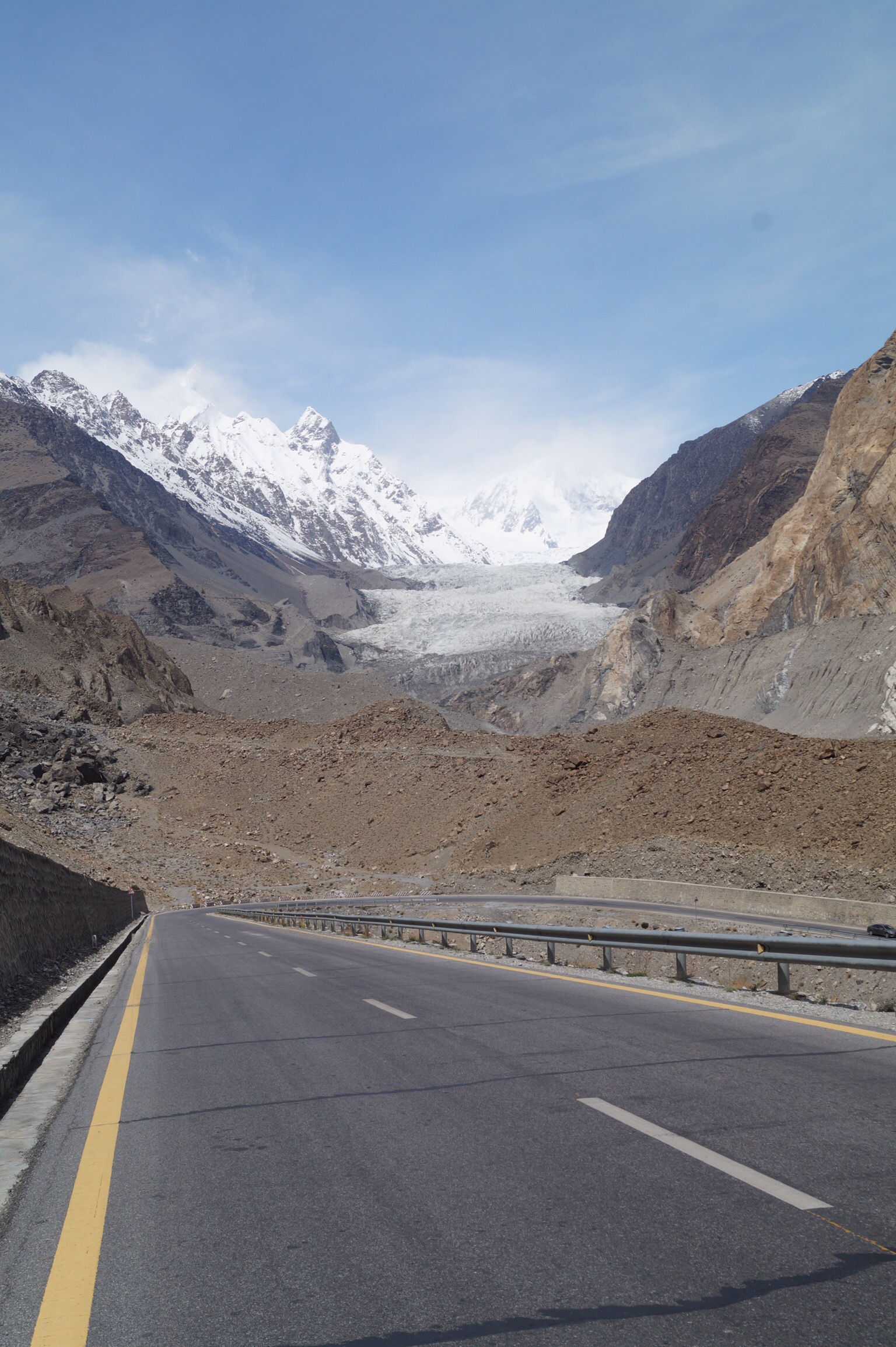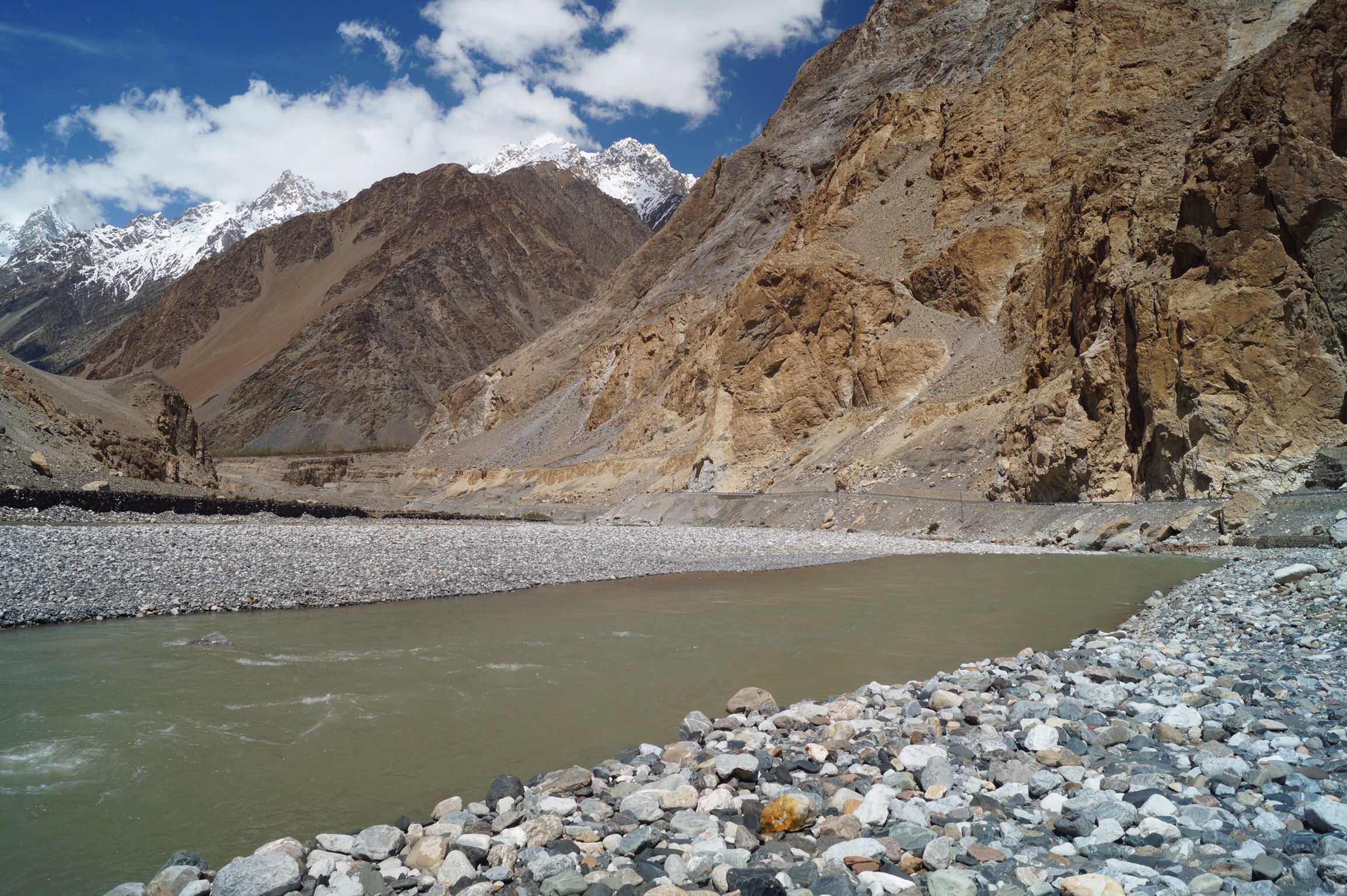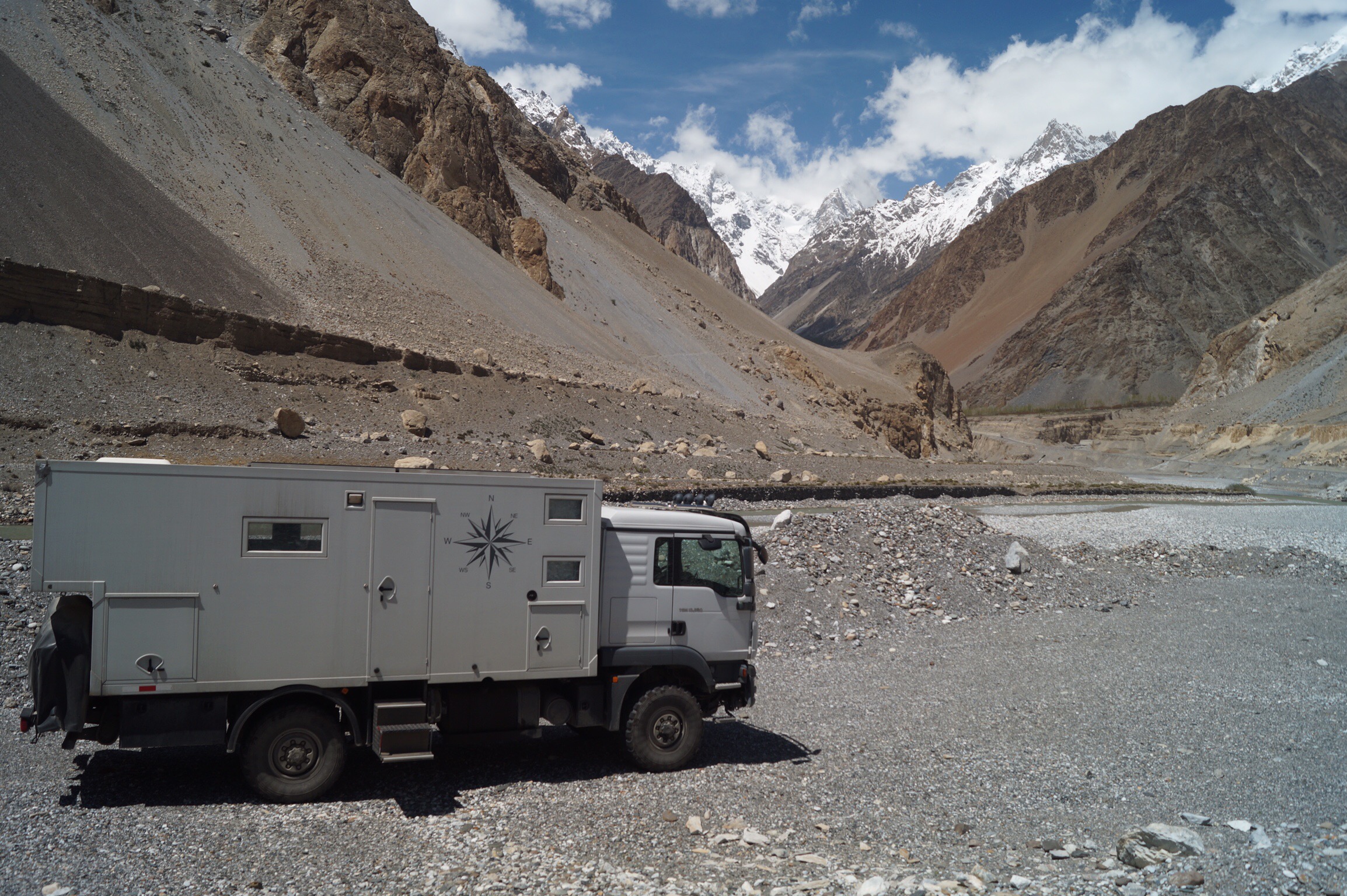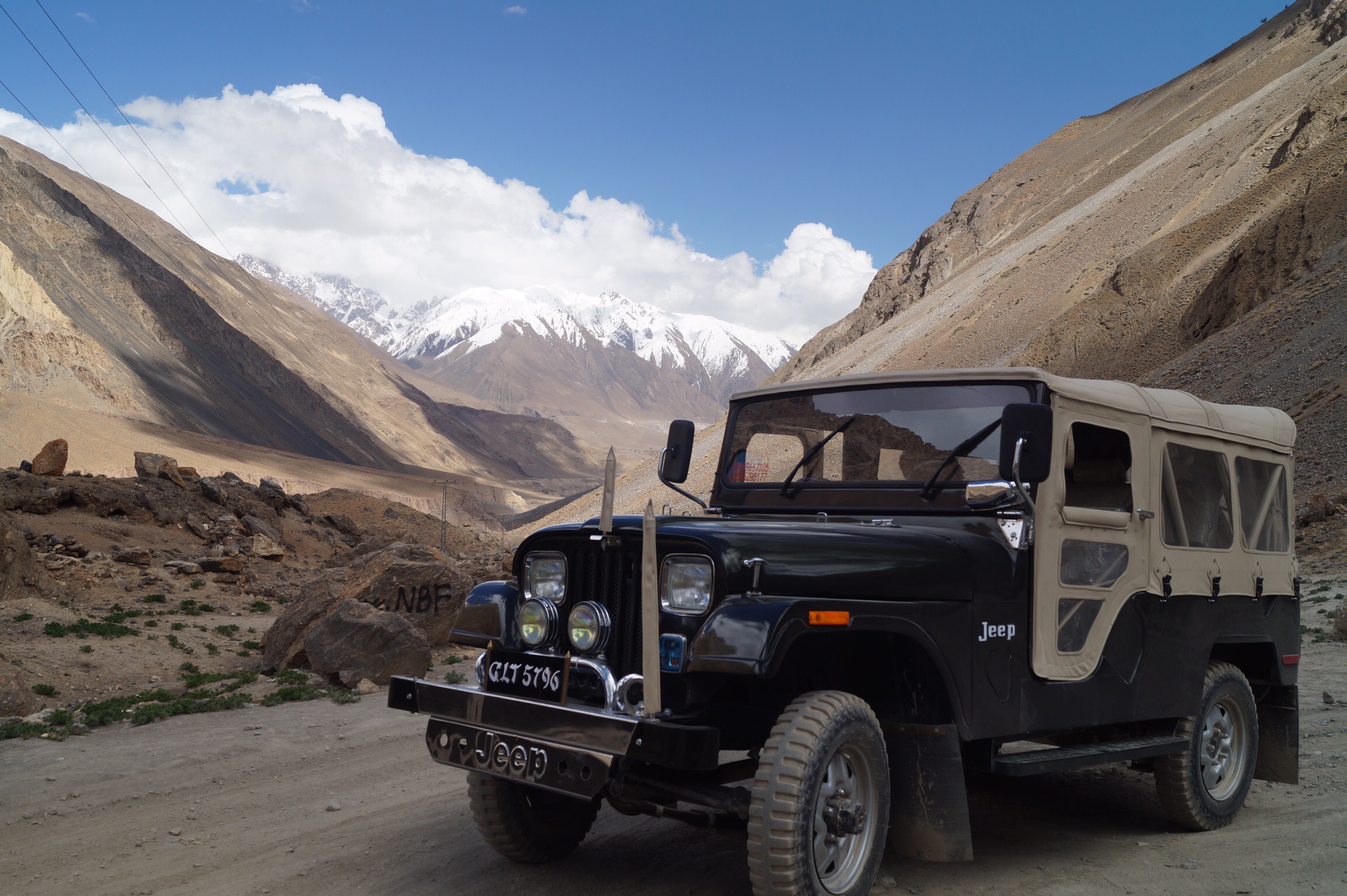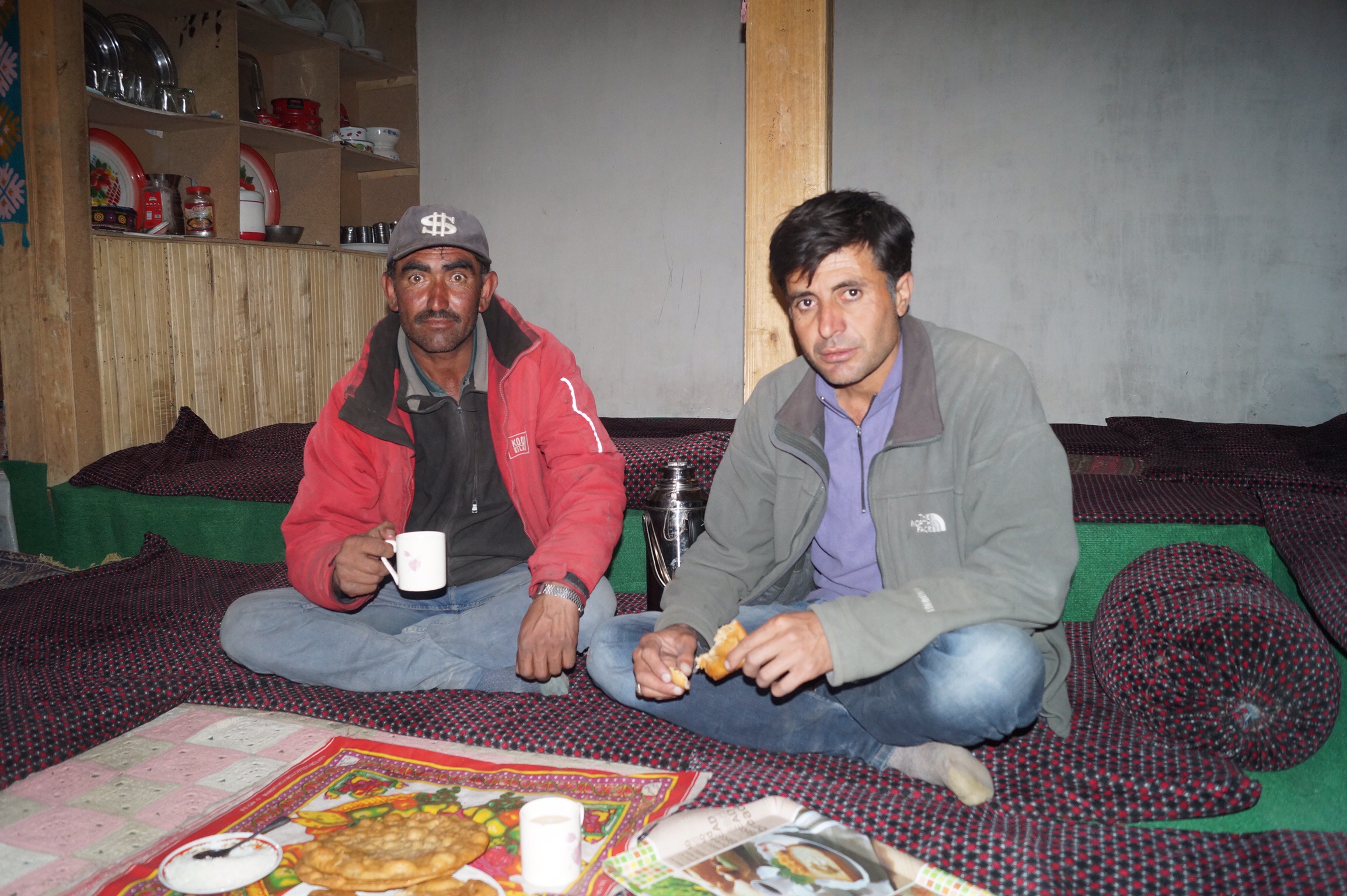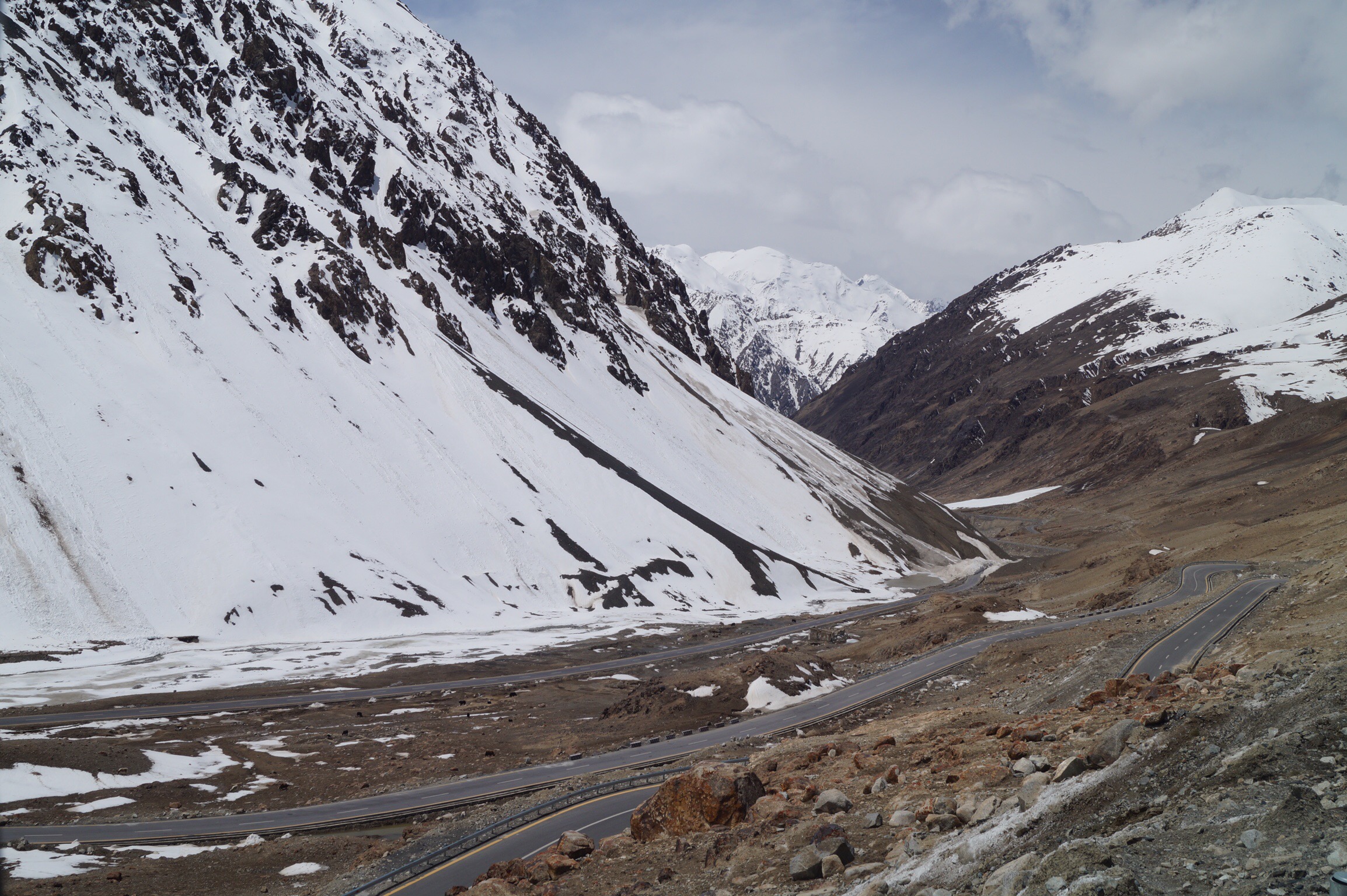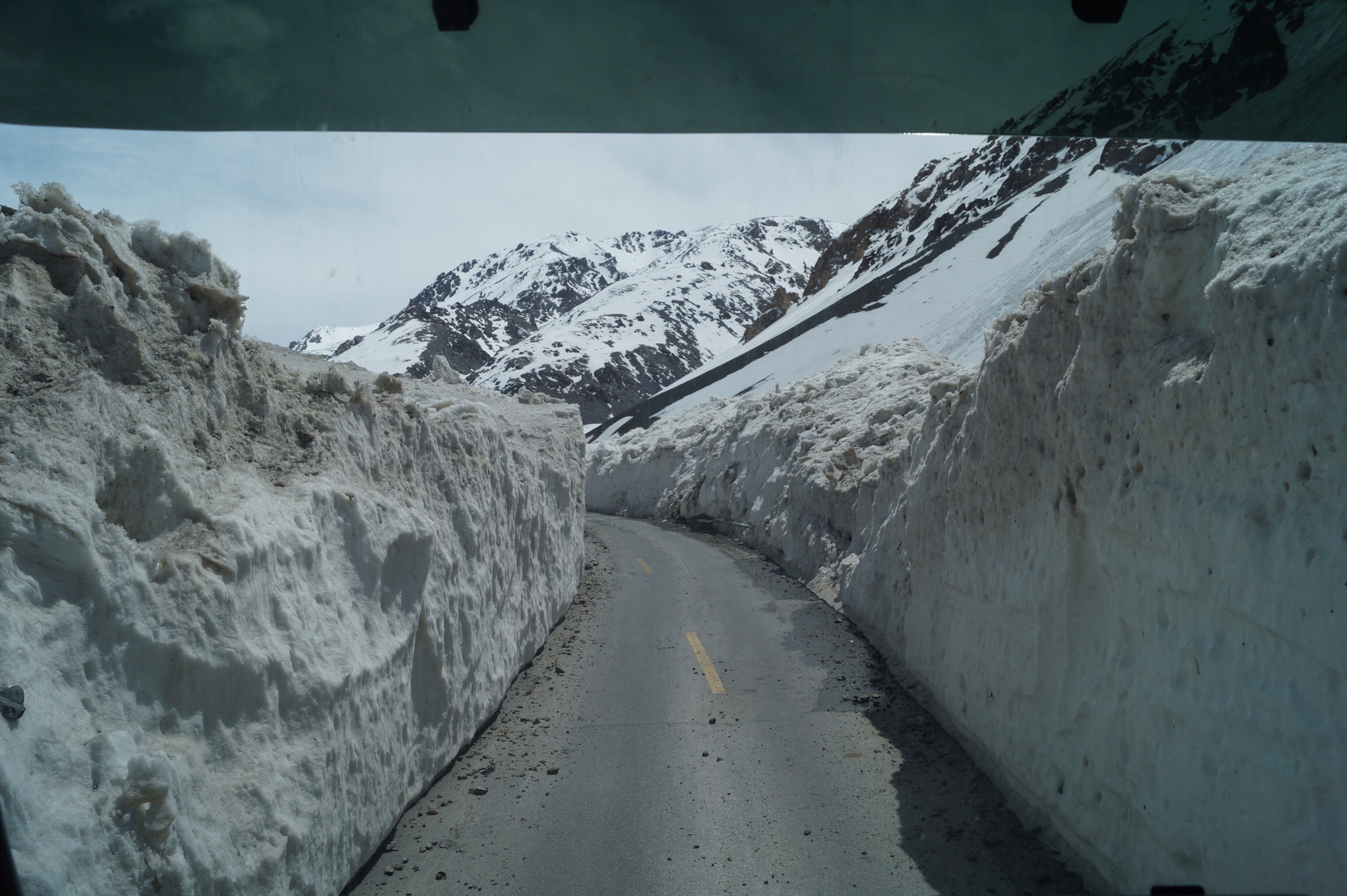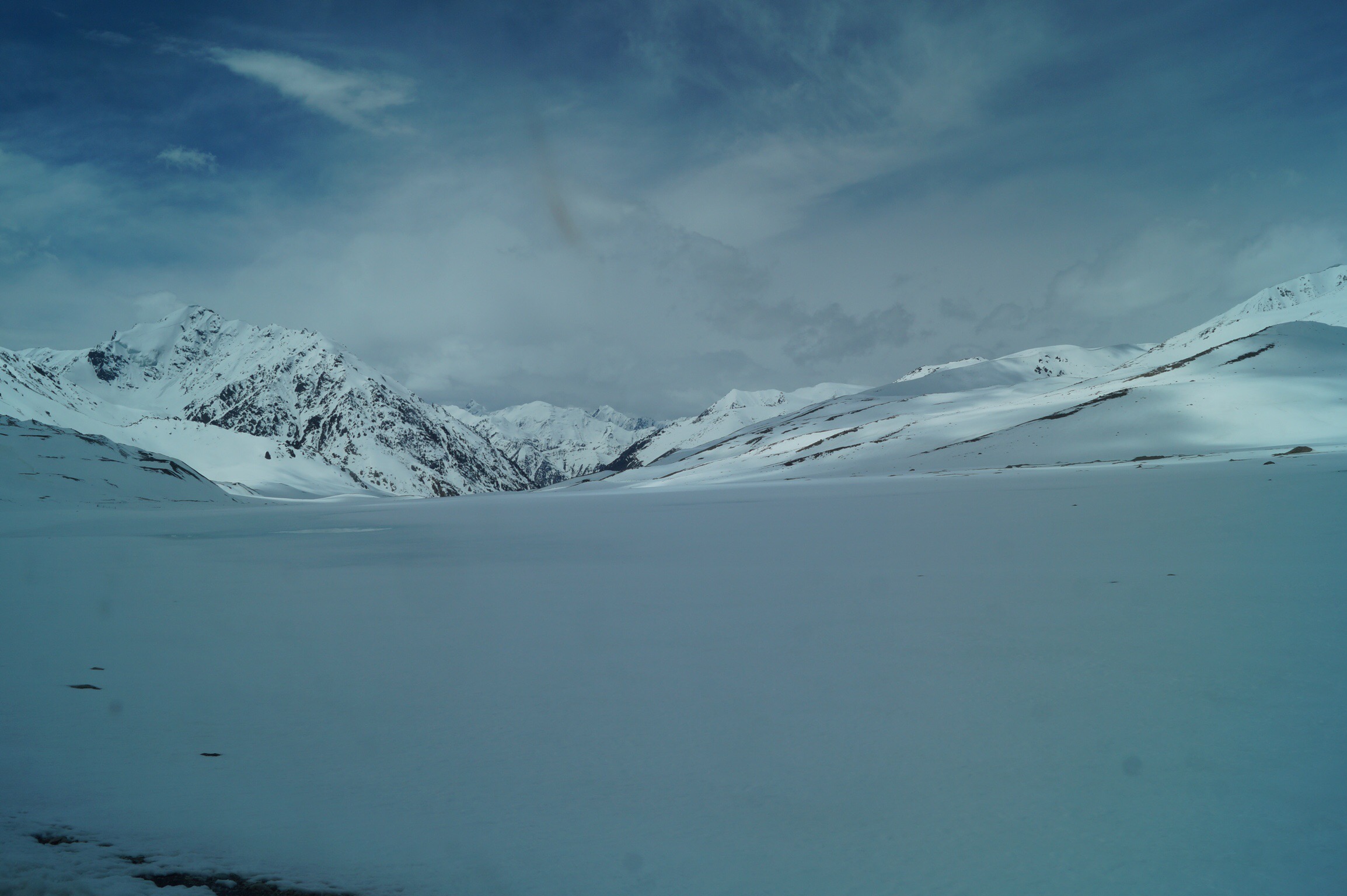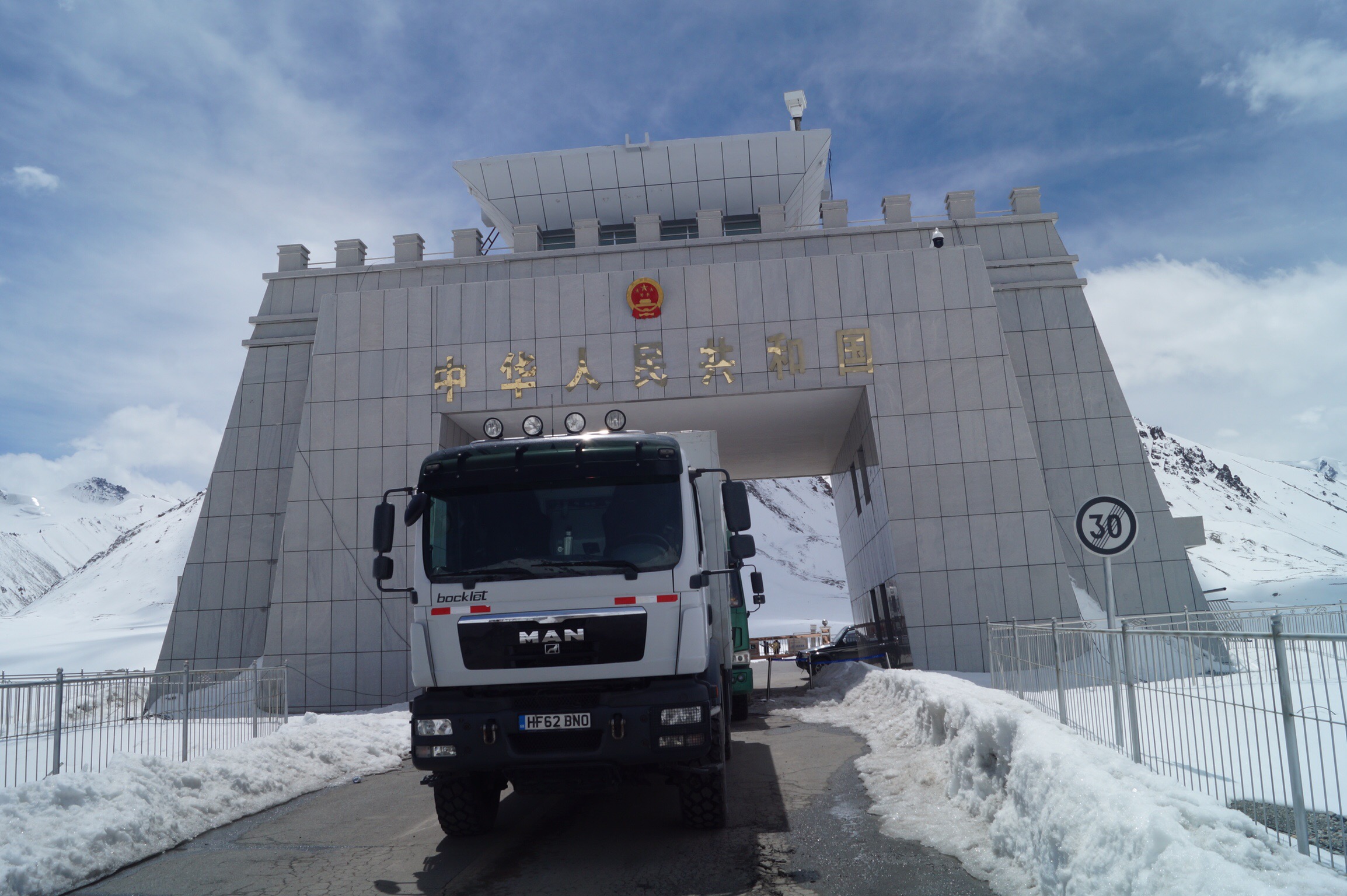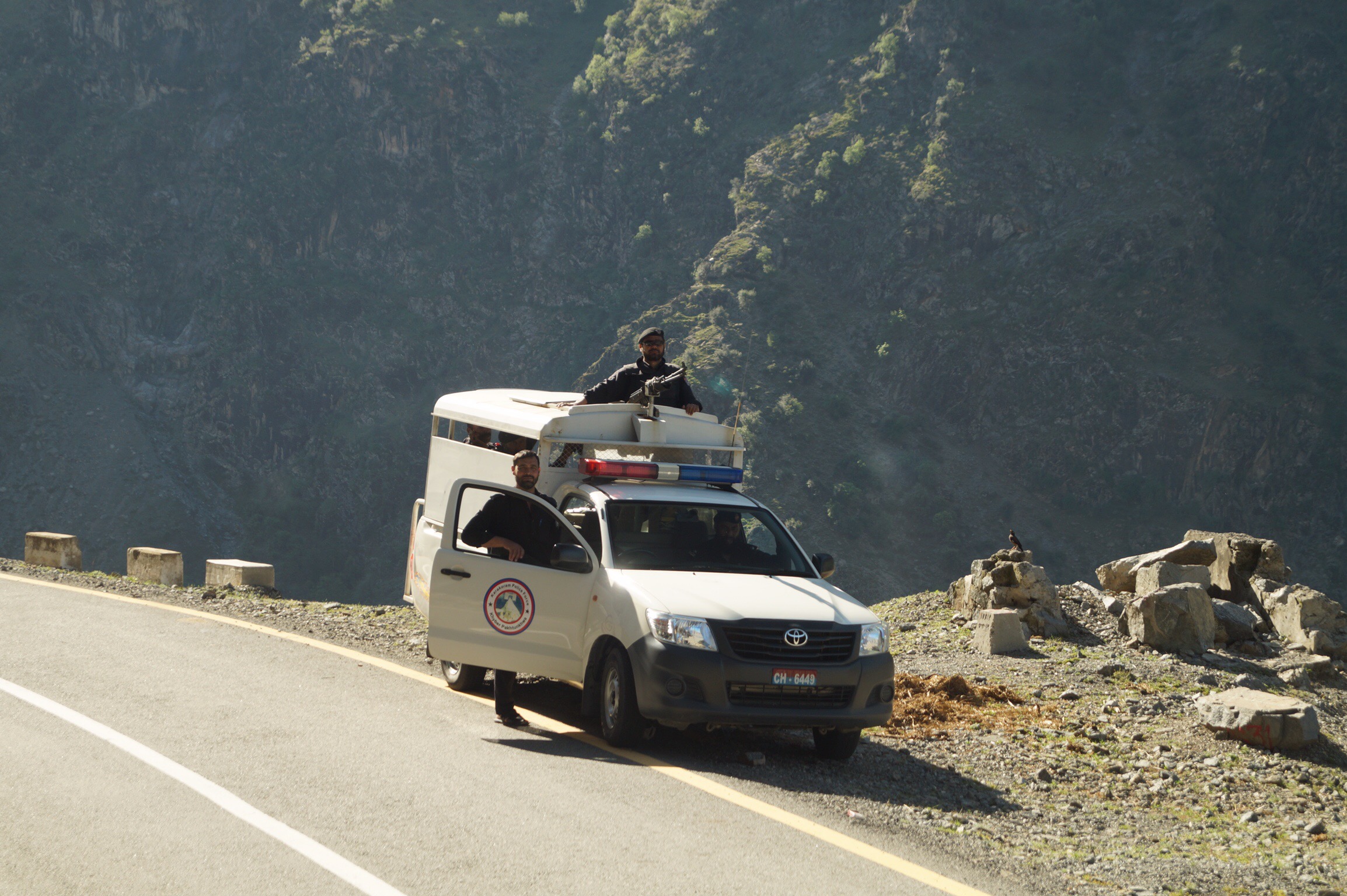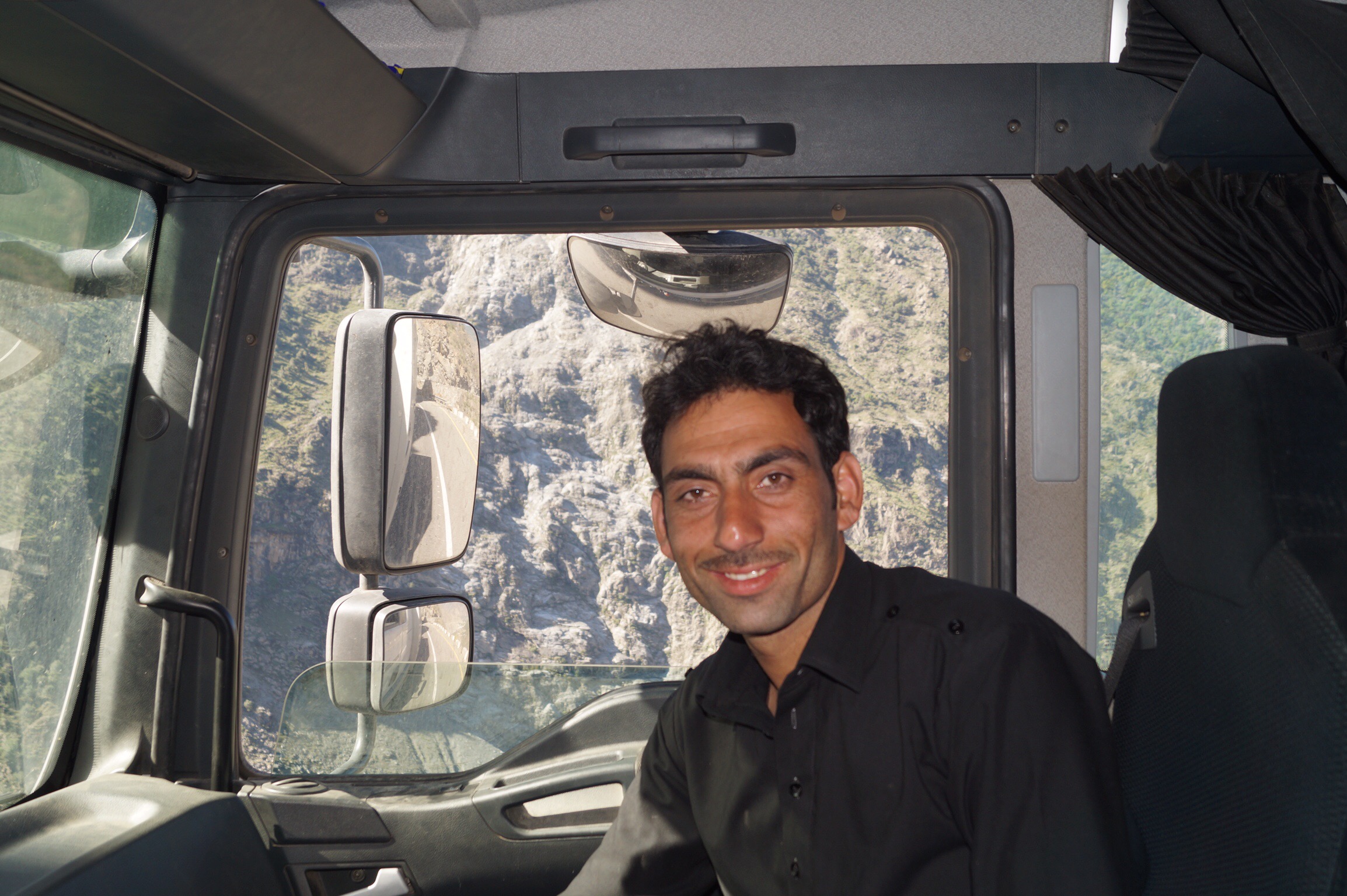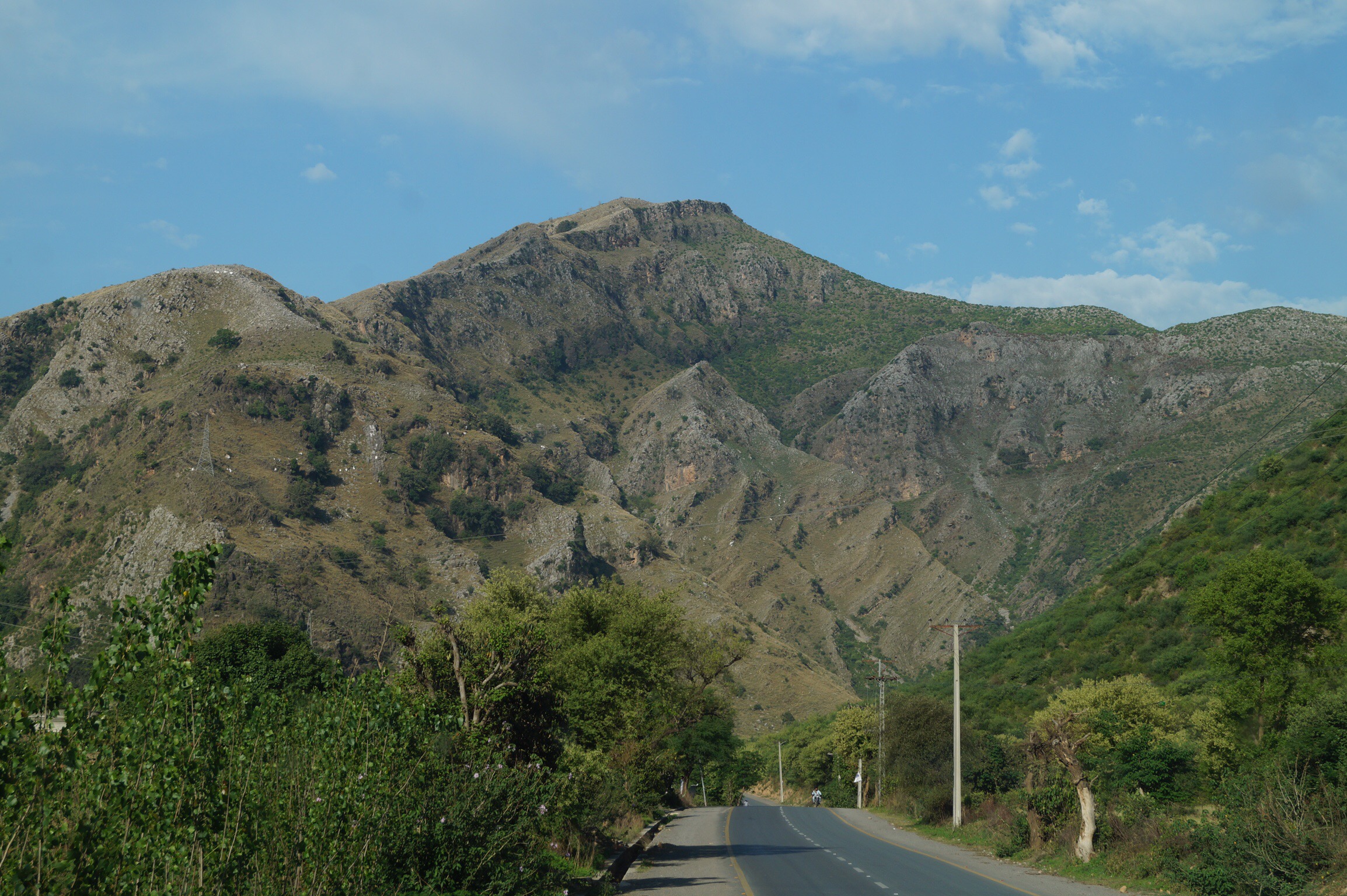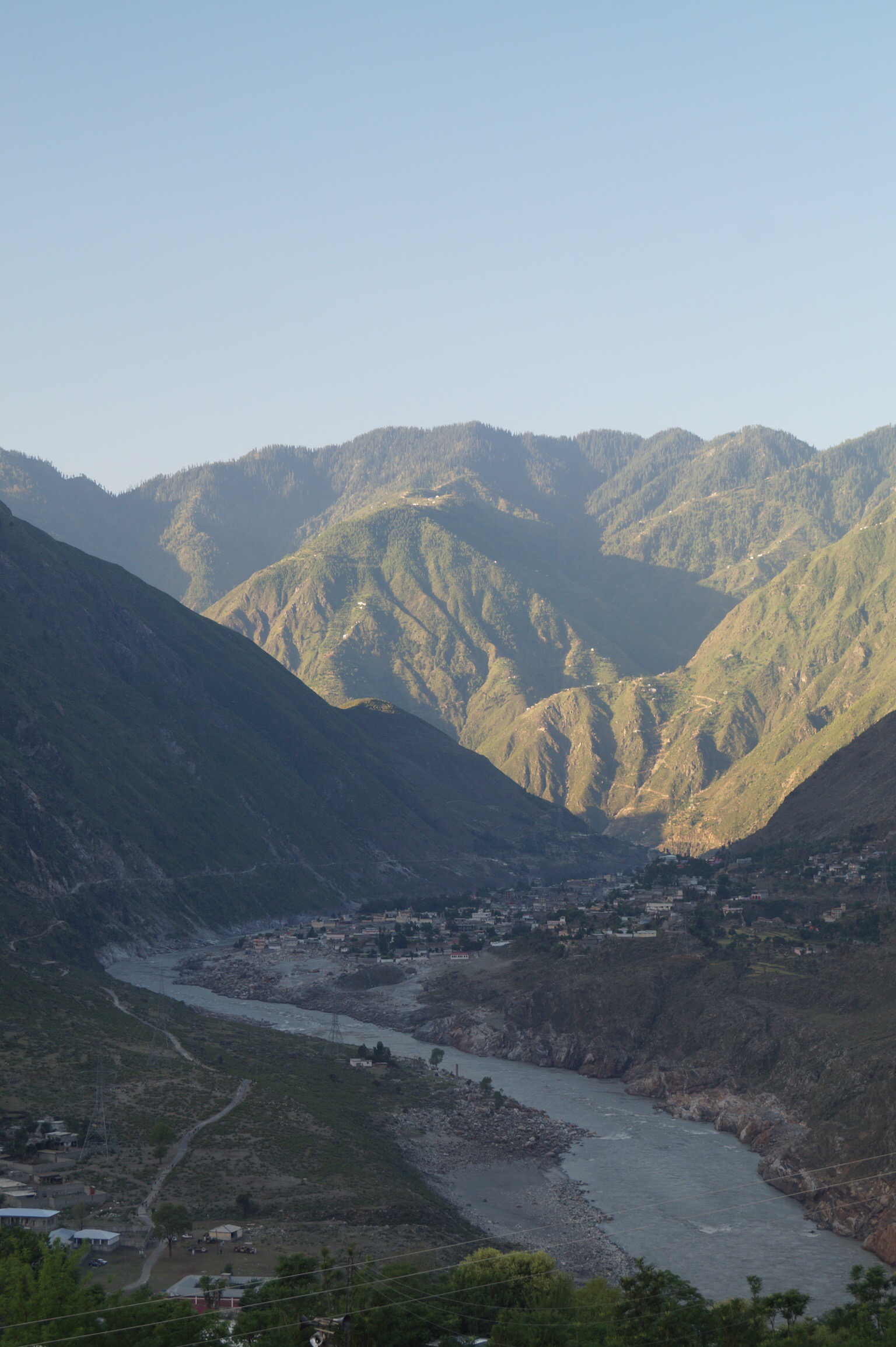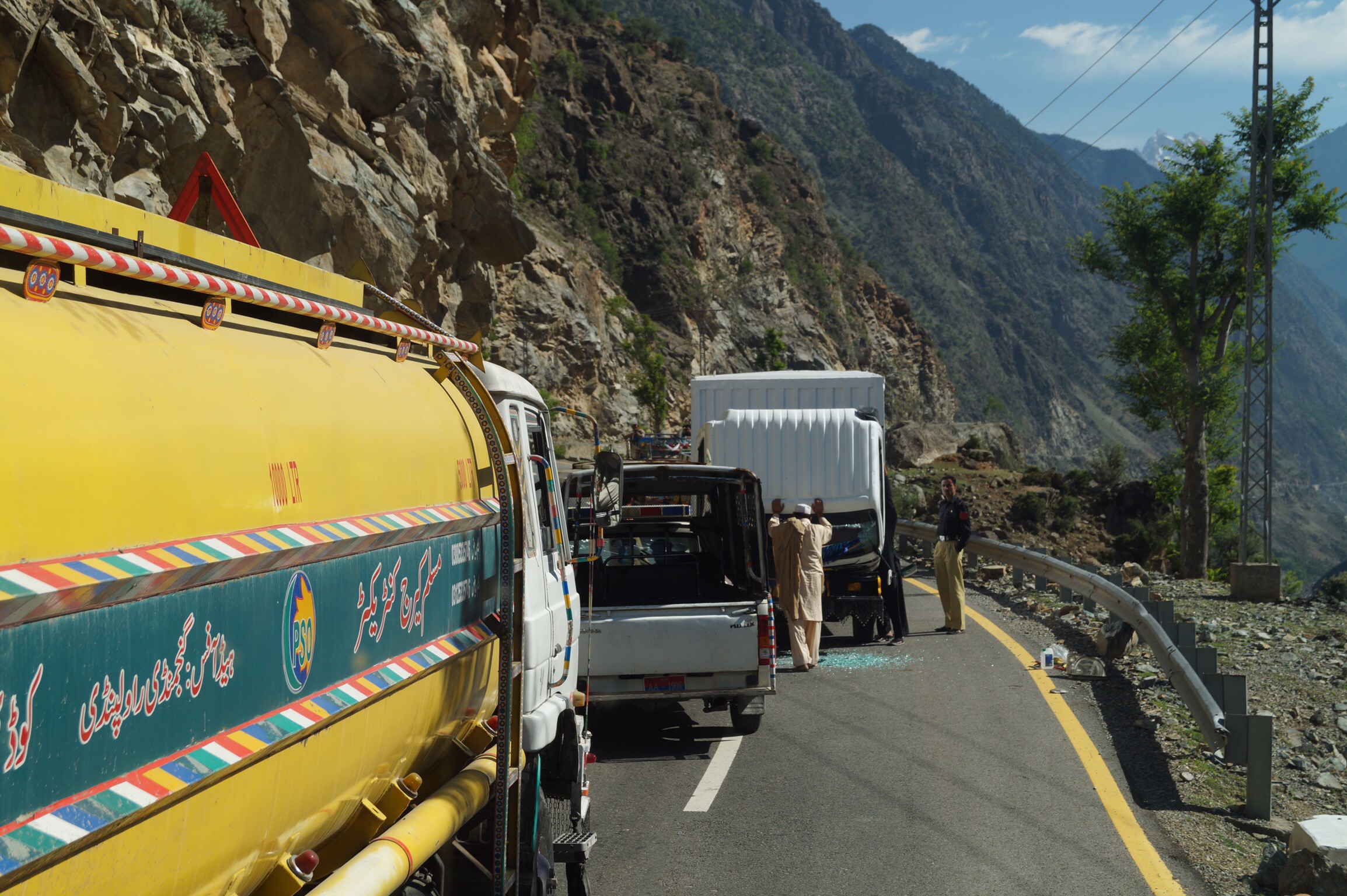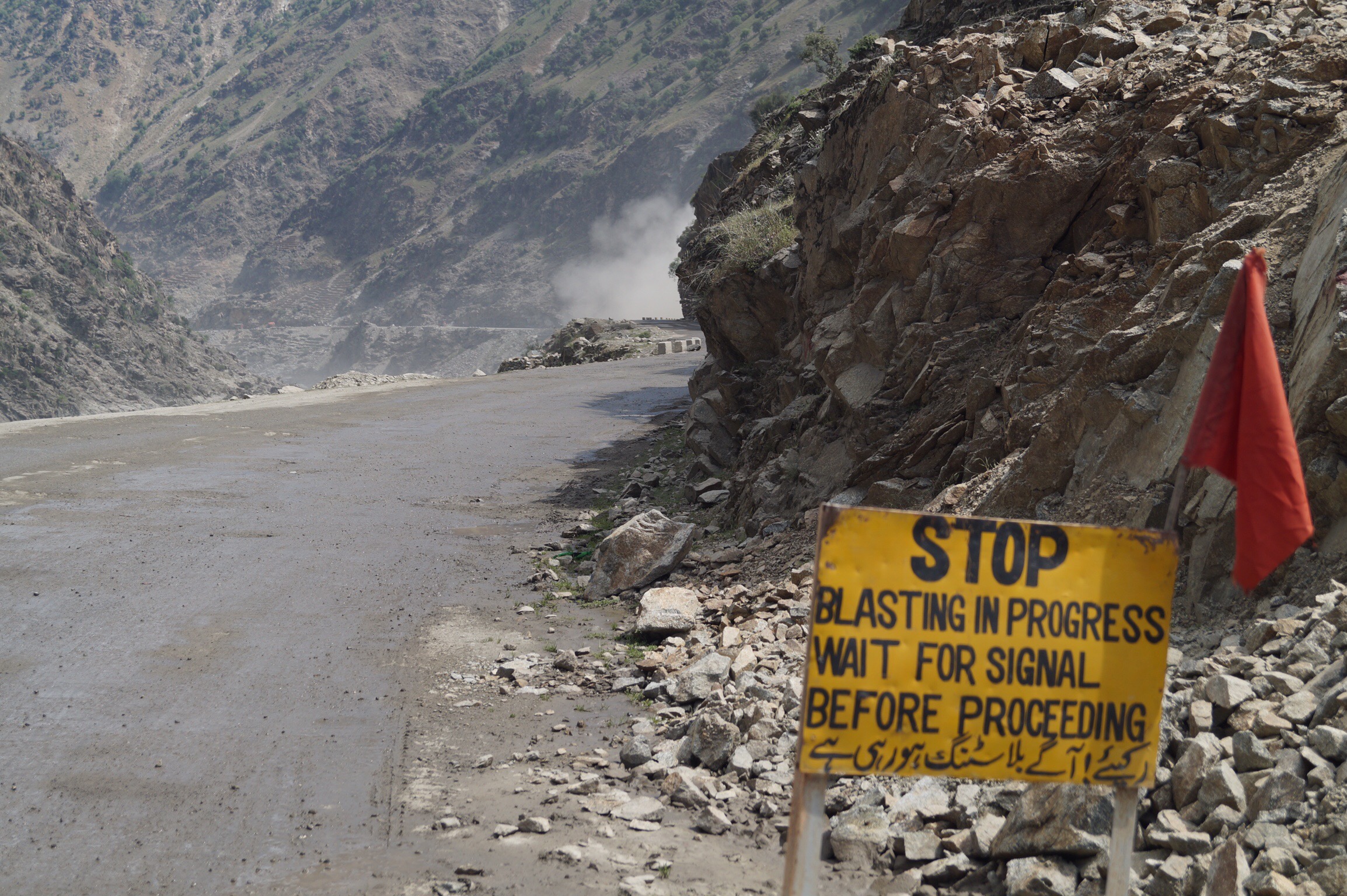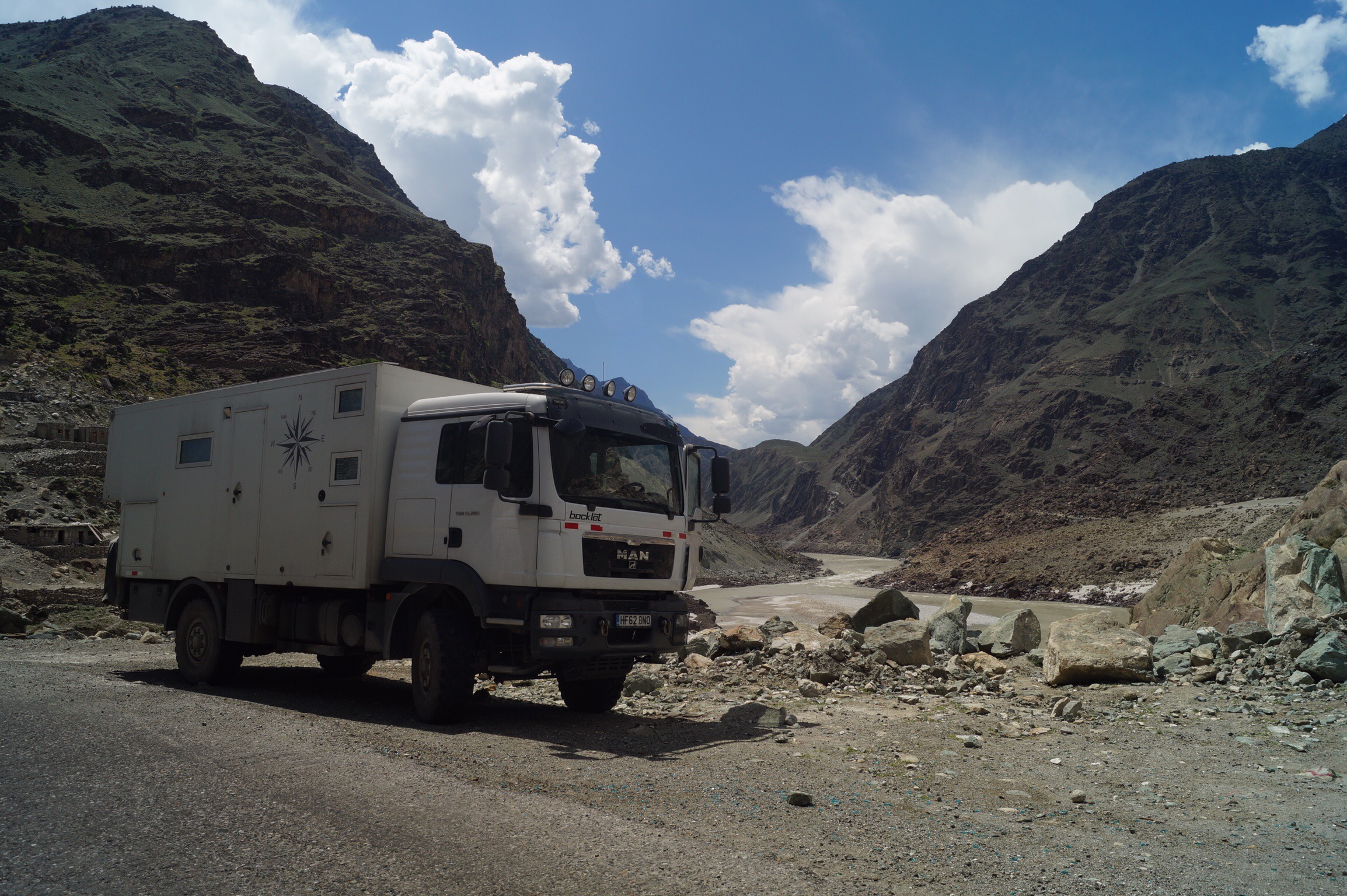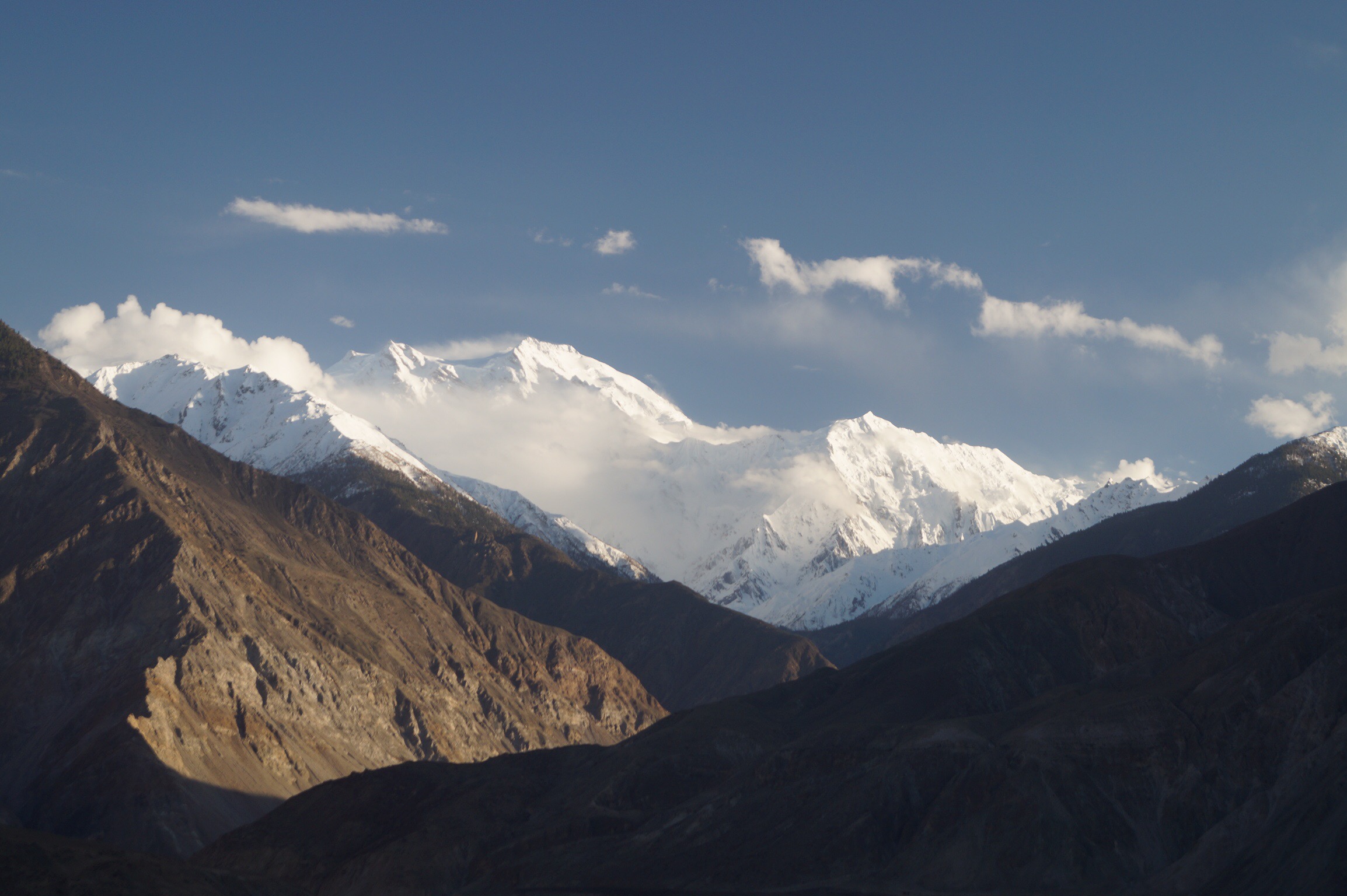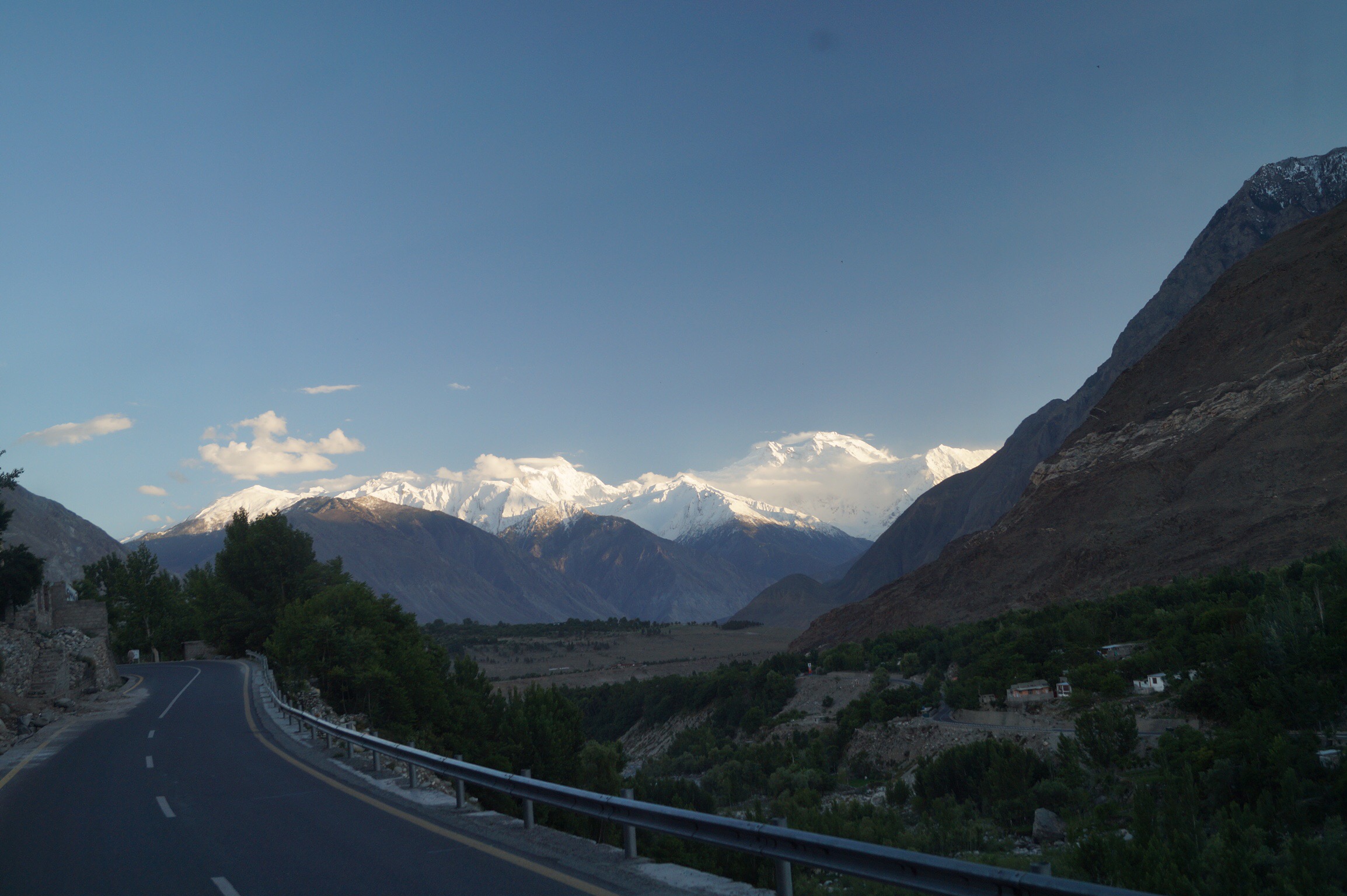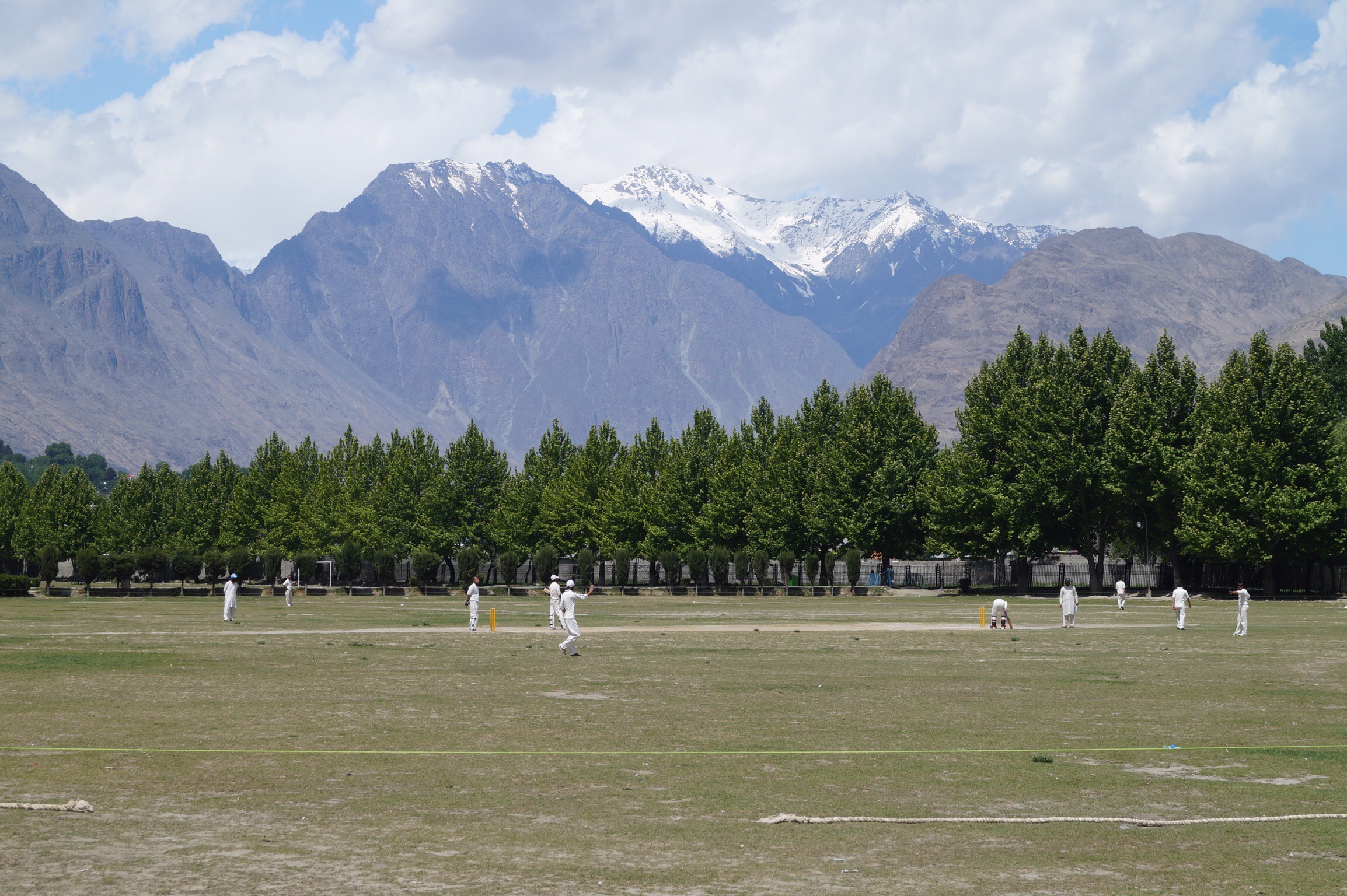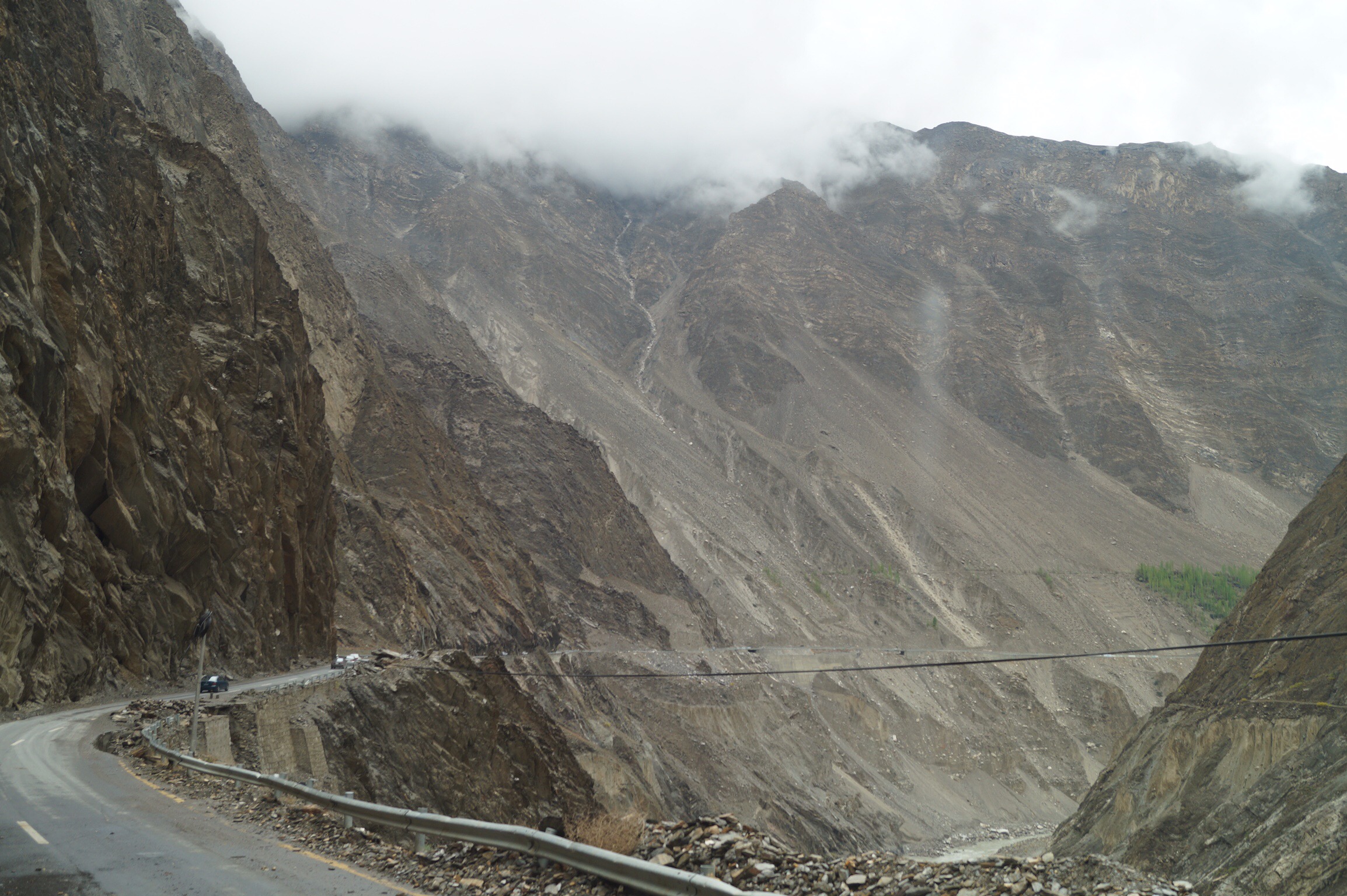"Turn right at the armoured personnel carrier and you can't miss the hotel," said Gilly. It was a foretaste of the next week. I had romantic visions of following in Marco Polo's footsteps crossing the vast Talamakan desert when in reality it was a stream of police checks and restrictions.
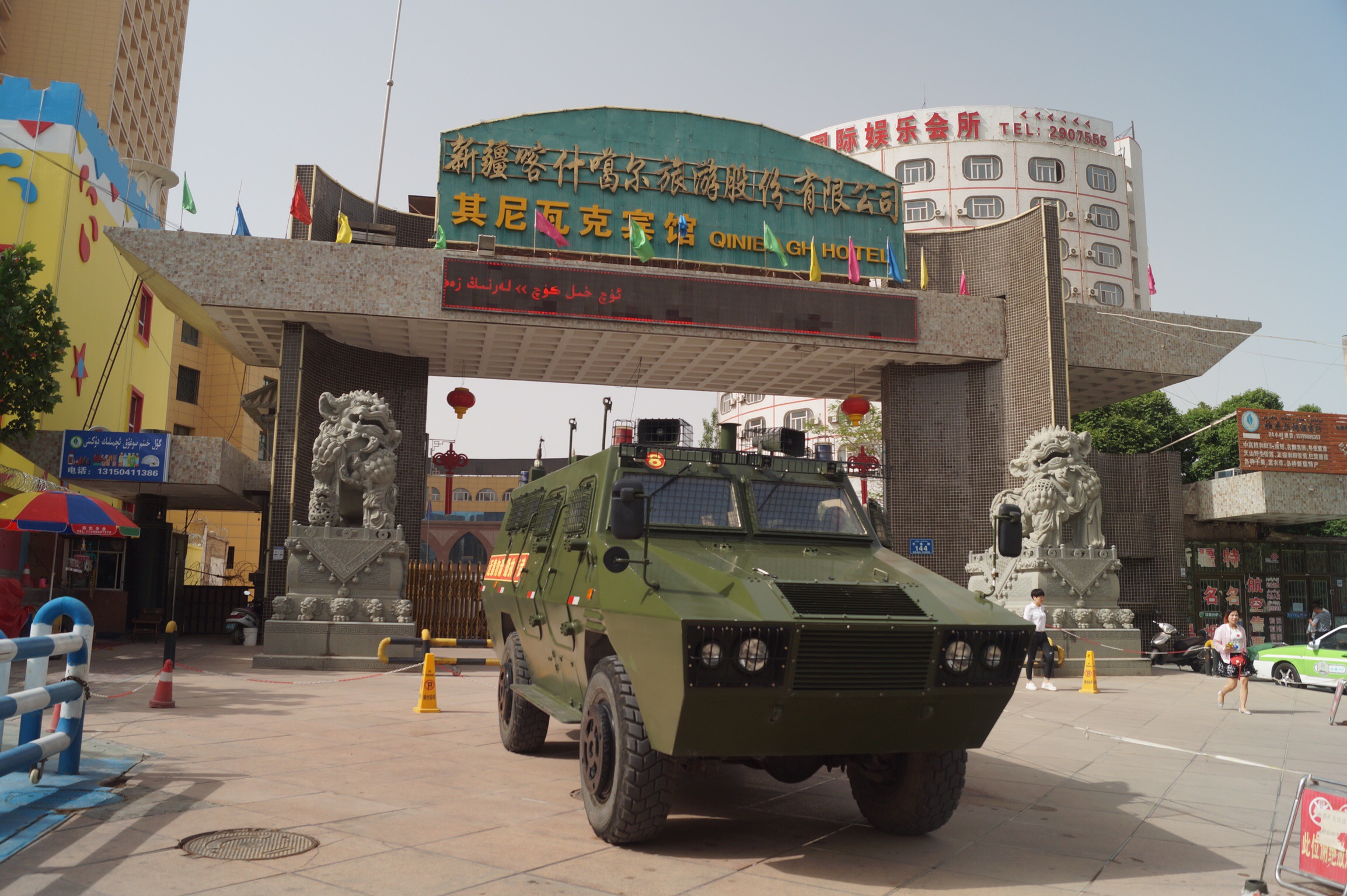
In the thirteenth century Marco Polo set out on an epic journey to explore China. Whilst our trip would be significantly easier it was not without its challenges. One of which was the amount of distance we wanted to cover in our short time there. China is big, very big. We have been driving a lot each day for a week and have only crossed one province, Xinjiang. It's been a lot of desert punctuated by oasis towns as we have followed the route of the old Southern Silk Road. The roads though have been fantastic. A complete contrast to India, good tarmac and little traffic so driving has been easy.
But first I had to get into China and meet up with Gilly, Alisha and Lucy in Kashgar. They had arrived on a stress free flight from Seoul. Me entering with the truck, wasn't quite that easy. On this trip so far we have been relatively fortunate with land border crossings. Yes there have been some hassles but the longest time taken to cross such a border, before this one, was around 4 or 5 hours. Well, this one certainly beat that. It took a total of 32 hours to cross. Now to be fair it did take 30 minutes to exit Pakistan and there was three and a half hours of driving involved to negotiate the Khunjerab Pass so only 28 hours (!) was on the Chinese side
It all started up at the Khunjerab Pass at over 4600m. Here I had to clear through the border police. Little did I know all vehicles for the day had to be cleared before we drove in convoy down to the nearest town 130kms away for immigration and customs. There were only 12 vehicles on the day I went through but it still took five and a half hours to search the vehicles. First we went through a mobile x-ray unit and then the border police performed an individual search. As I watched them go through everything in the truck in front of me including all the tools in his tool box my heart sank. This would be a nightmare if they did this to my truck. It started that way too with mine as they went through my first box, even wanting to open sealed boxes to check it really was a spare oil filter in there. Not been the most patient person I decided to be the slightly difficult foreigner. Whilst they weren't exactly happy with this, and I gently backed down a couple of times, this quickly speeded things up and most of the other cupboards etc were given a cursory glance.
On arriving in Tashkorgan I first met with our guide before immigration and customs. This took another 3 hours as all the documents for everybody were checked. Then the army performed another search before we drove off to customs to drive the vehicles through another x-ray machine before leaving them parked for the night. It was gone midnight when the guide and I reached the hotel. All the restaurants were closed so we only had some bread for dinner.
The next day was a frustrating one at customs. Local customs were waiting for some paperwork from Kashgar so they could release the vehicle. I could never quite understand whether there was a problem with the paperwork in Kashgar, a problem with transferring it over the internet or what but it was a long day hanging around. Eventually at 7pm I was told it was all ok and I would be able to drive the truck out shortly. After a cursory check we left at 8pm. It was too late to drive any further but at least we were able to get a celebratory beer and a decent meal.
We were on the road early the next morning as I was keen to meet up with the family in Kashgar. We also had other paperwork to sort out there too. It was a lovely drive down to Kashgar through the mountains. We went over another 4000m pass and passed Lake Karakol. However it was great to arrive in Kashgar and be reunited with everyone. Let's hope we will all complete the rest of the trip together.
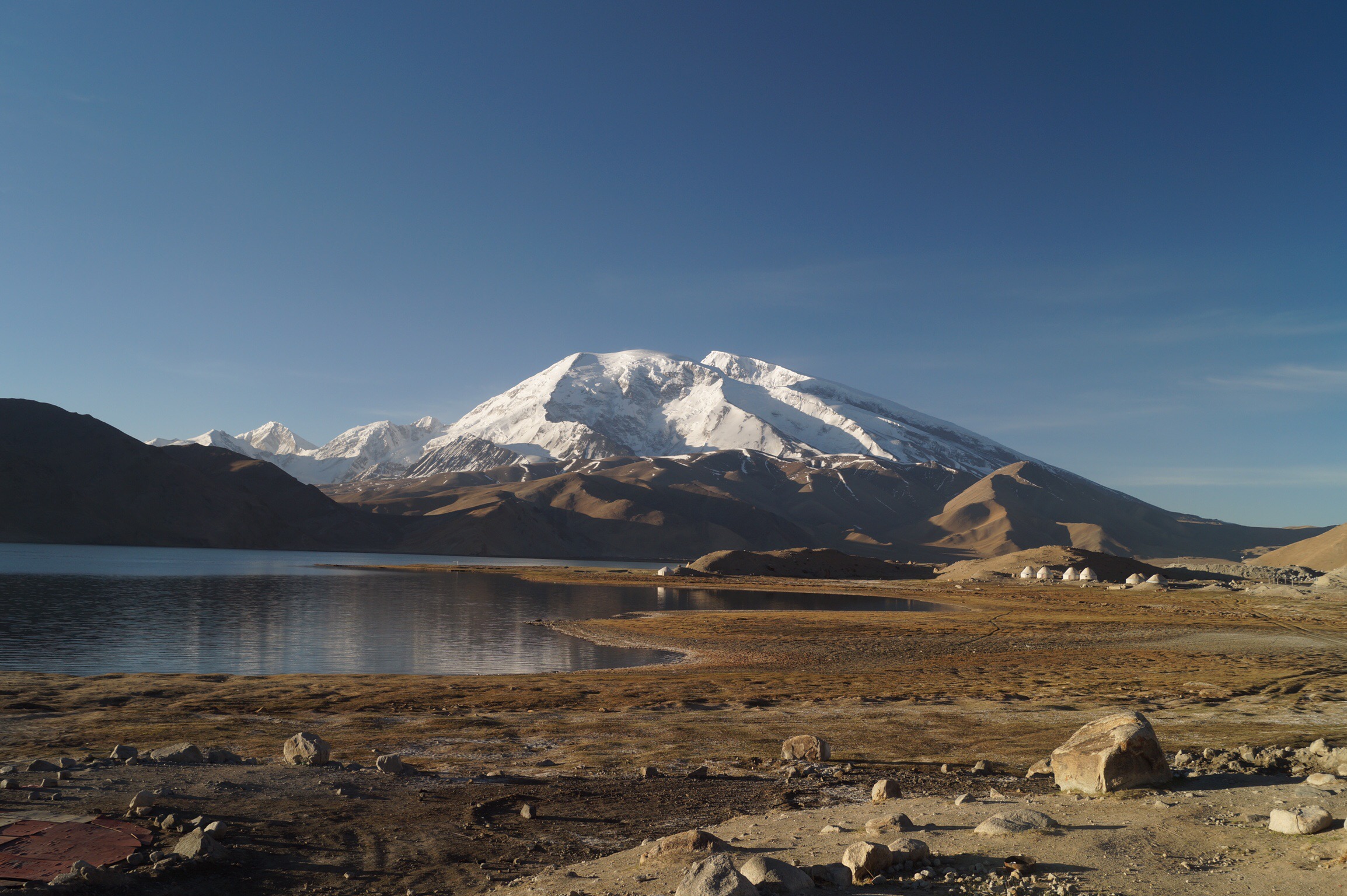
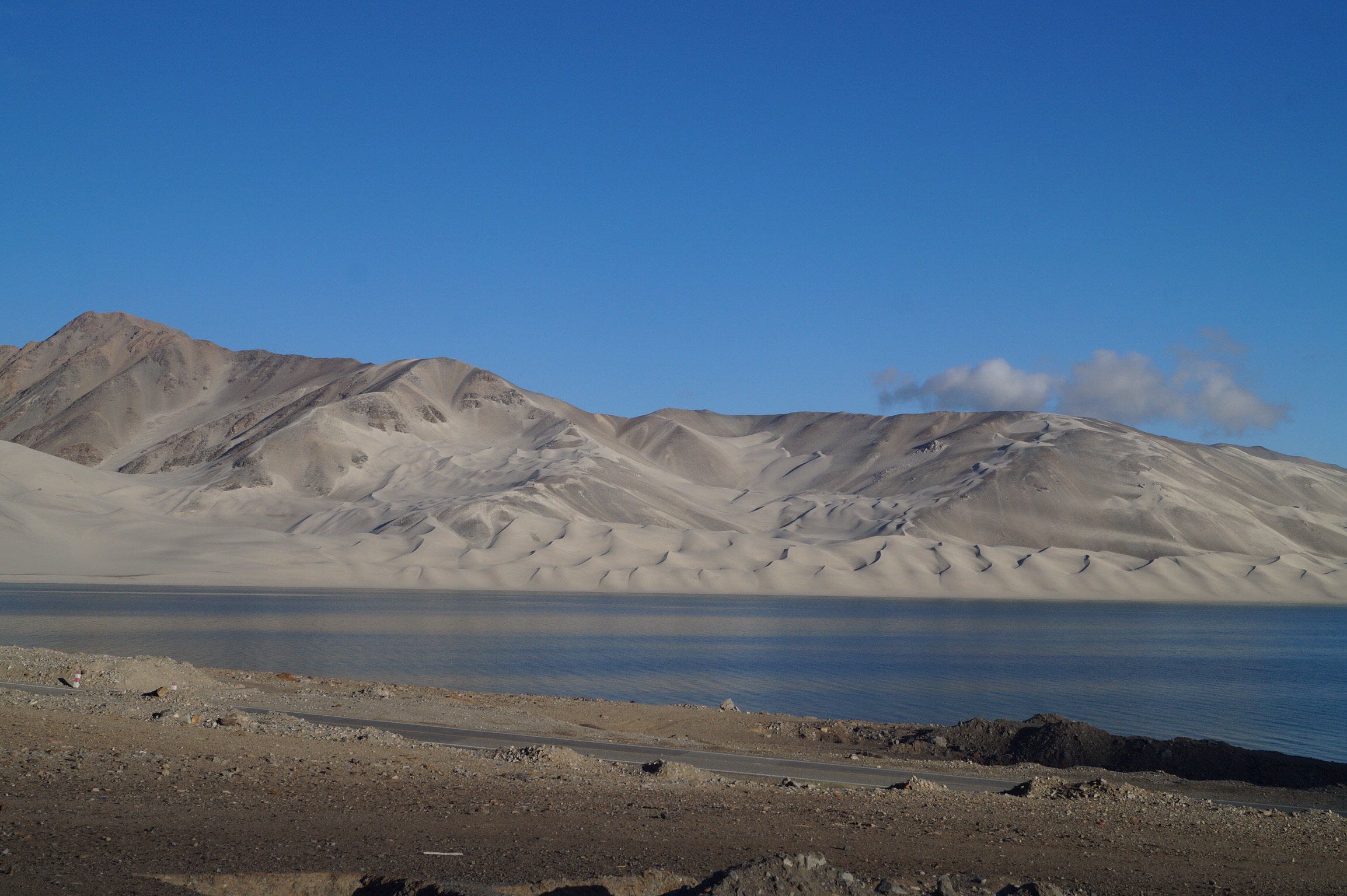
After all the delays at the border I was concerned how long it would take to get my Chinese driving license, Chinese number plate, insurance and vehicle certification. To my surprise it all went fantastically quickly and smoothly. Neither the truck nor I even needed to visit the Traffic Administration and our new guide telephoned me to say she would have it all with her when we set off the following morning.
We will be returning to Kashgar at the end of our China tour so we didn't spend any time sight seeing. The town looked interesting though with its Uighur people and their Muslim traditions. Lamb sat roasting at the side of the street and men with skull caps were enjoying the long evening playing cards.
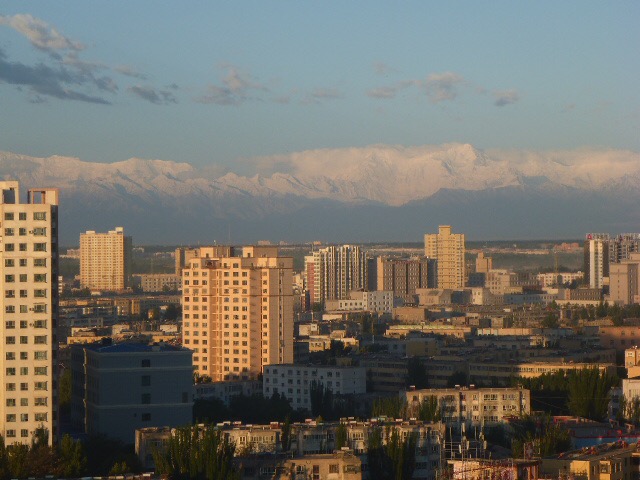

Mind you the most notable feature were the amount of security and police on the street. All there for the safety of the local population. I had experienced this at the border but was shocked to see it so much in Kashgar, There were police posts on every corner and we even had an armoured personnel carrier parked in front of the hotel. To get into a bank or even some shops you had to show identification and I was told if we needed to buy fuel in town we would have to register at the police station.
Driving across the Taklamakan Desert the security continued. There were police stops with document checks and searches at regular intervals and the security situation was the same in every small town. We even had to show identification to enter a small park. All the fuel stations were heavily barricaded and guarded by police with guns. You needed to show identification to get in (fortunately our Chinese guides ID worked) and only the driver was allowed in the fuel station!
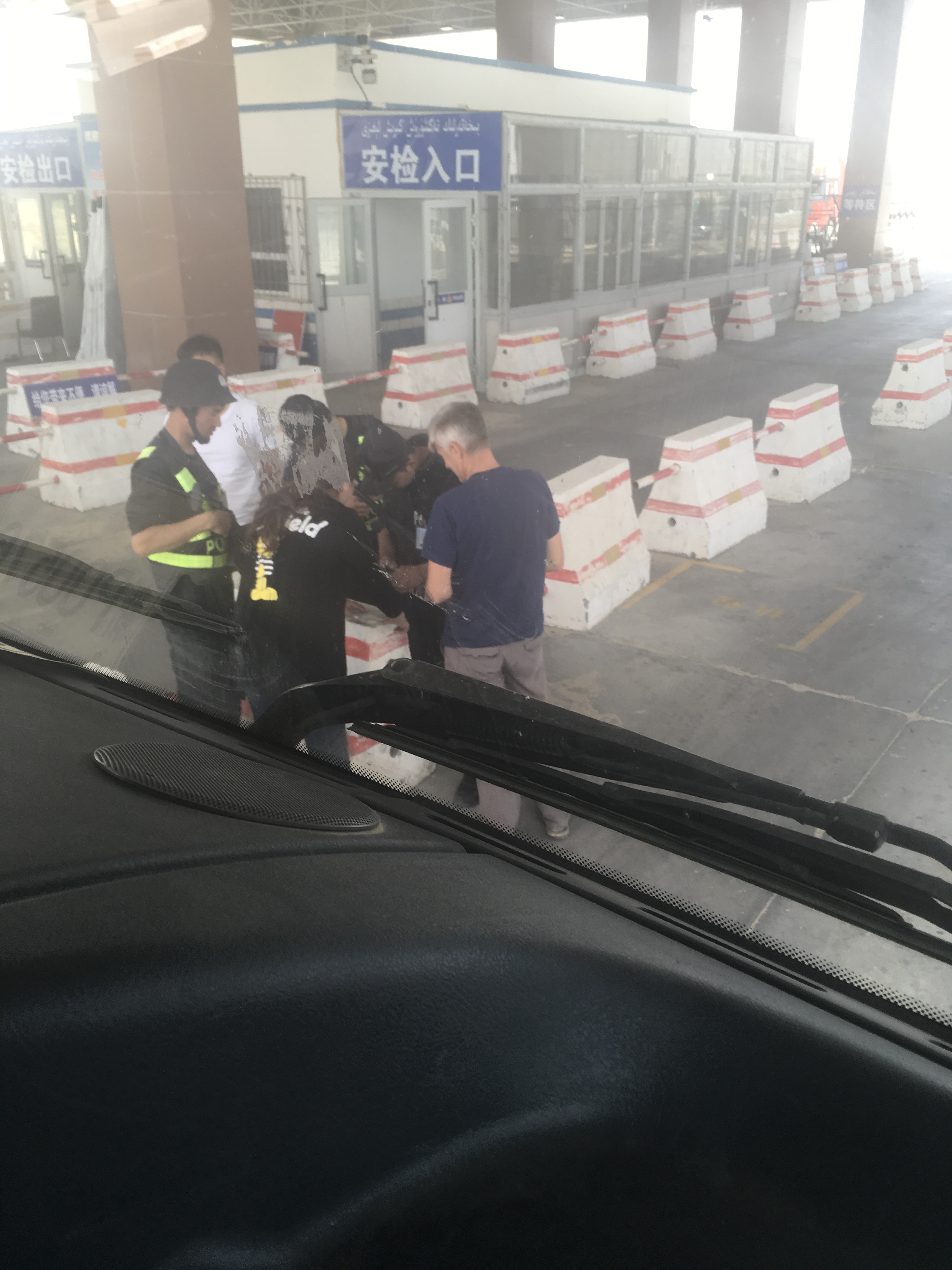
Arriving in the first town we were told we had to register with the local police first before checking into the hotel. We were having to stay in hotels as wild camping was prohibited and even which hotel we had to stay in was prescribed for us. Our guide did a great job getting us through all the checkpoints (especially with me being my usual, need to obey self) and in making all the arrangements for our accommodation. The police were not too happy that we were staying in Kargalik, not that much seemed to be happening, and even rang our guide to check we had left the following morning.
We headed further along the Silk Road to one of its most important towns Hotan. This had been an important crossroads for trade and this still thrived in the bazaar where we bought some fantastic dates. A lot of the old town had been pulled down and everywhere we went new buildings were going up. It was apparent just how much new building there has been in the last 20 years.
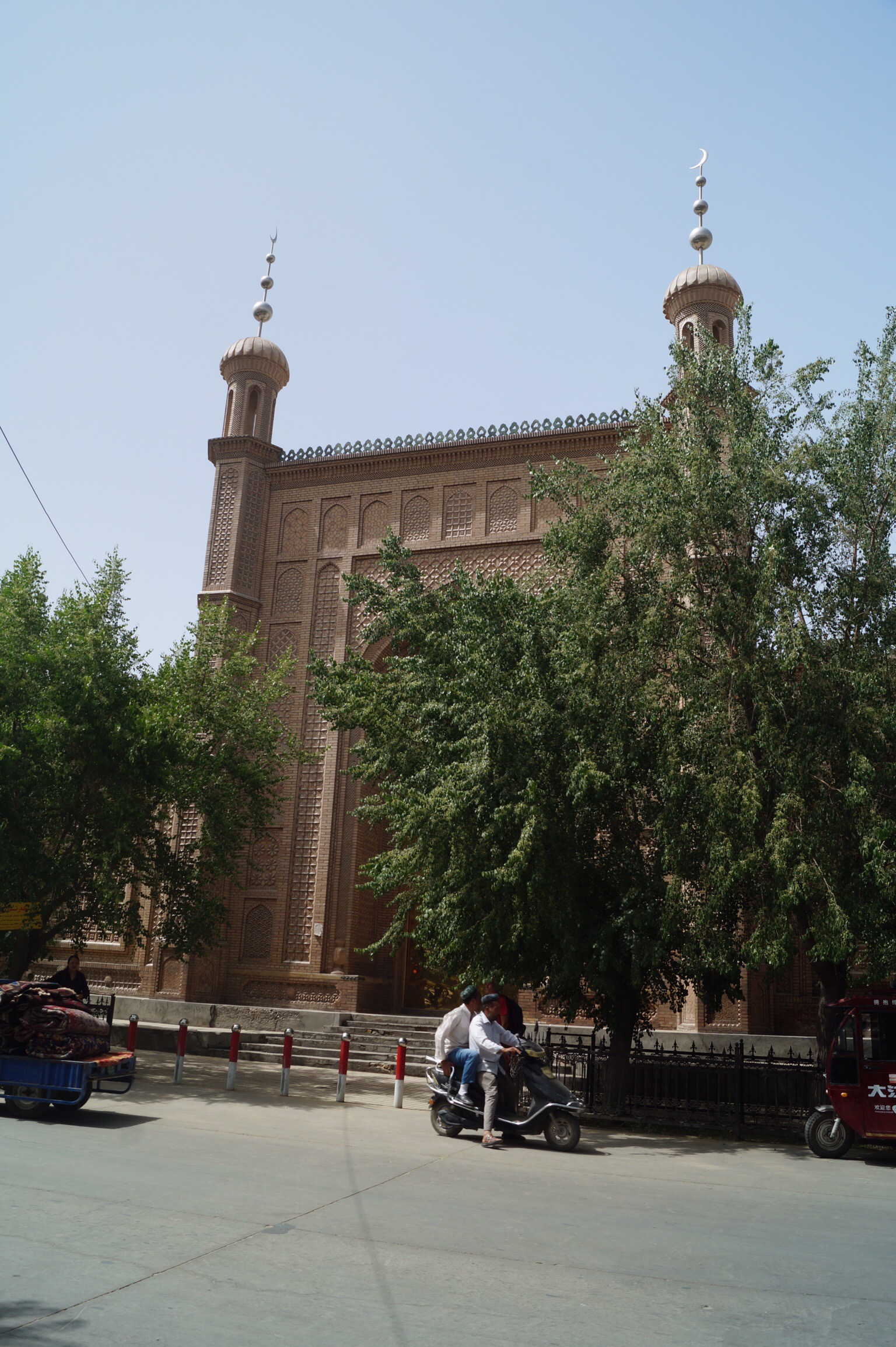
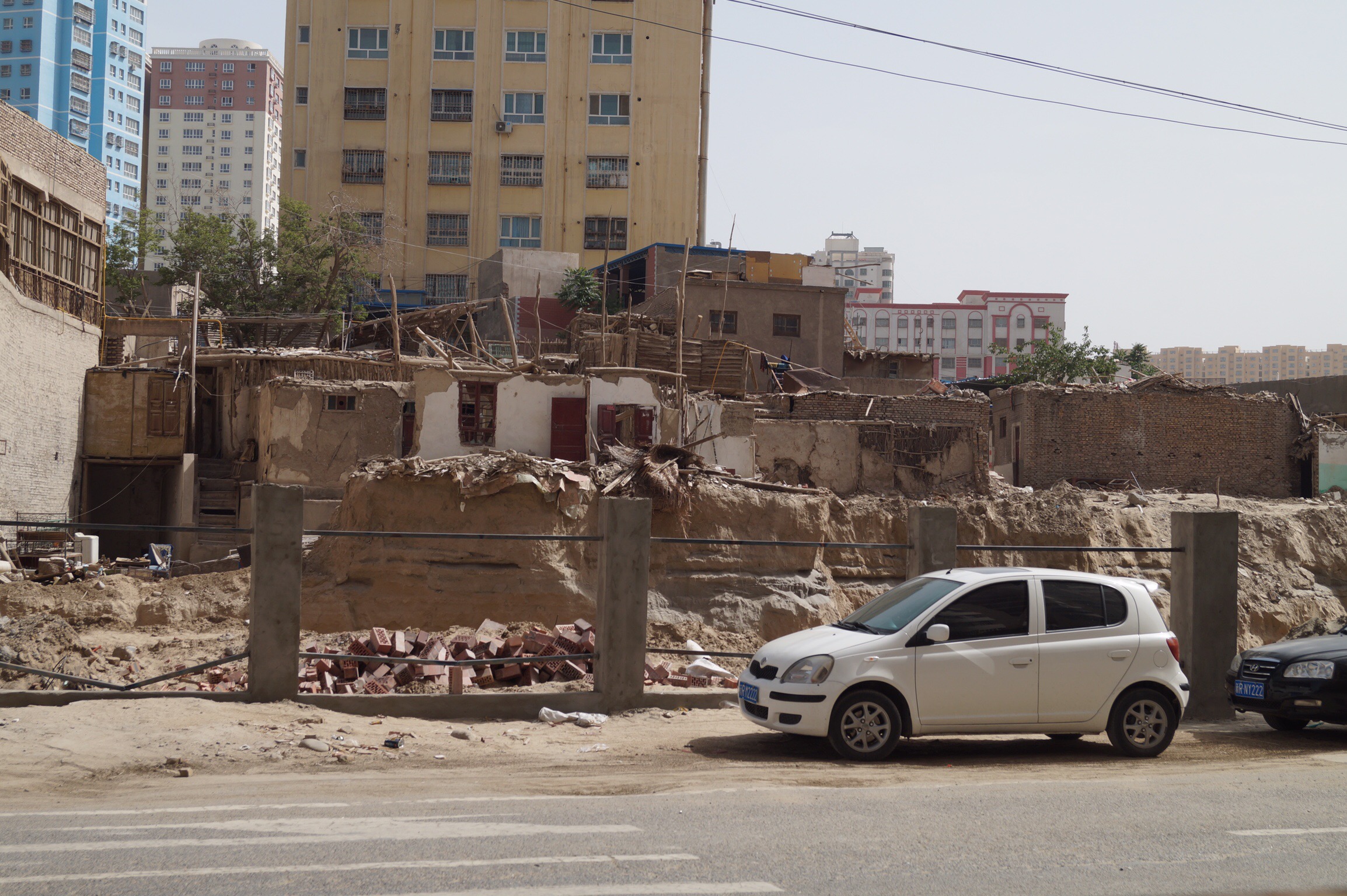
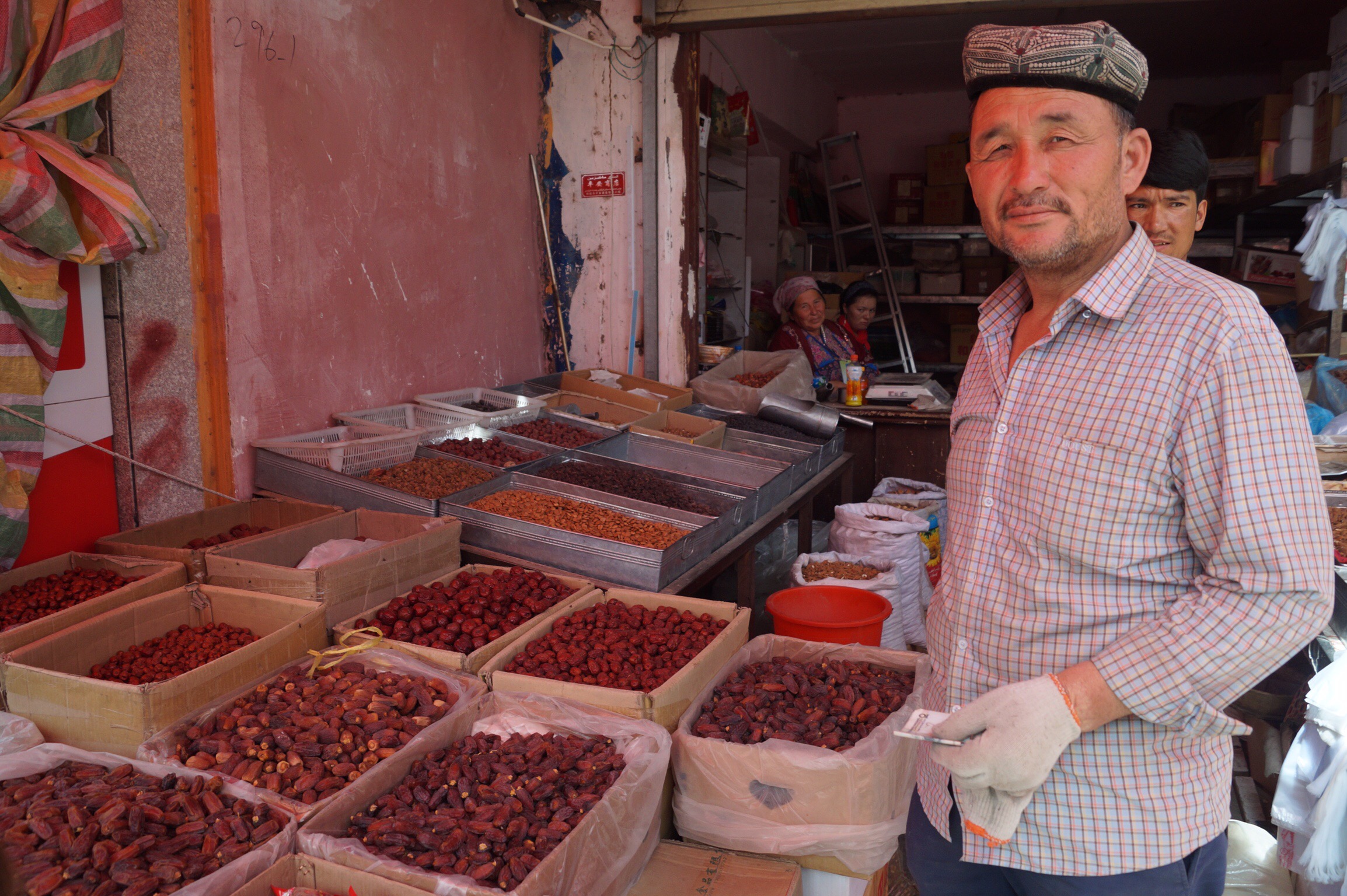

Leaving Hotan we headed further into the desert. In front of us were rolling sand dunes. Every so often these would be punctuated with small green oasis towns. In some of these we would stop and spend the night as the driving distances were long. Each day at the end of a long drive we would find time to wander the streets. Whilst there was nothing major to see it was interesting watching daily life and sampling some of the local foods.
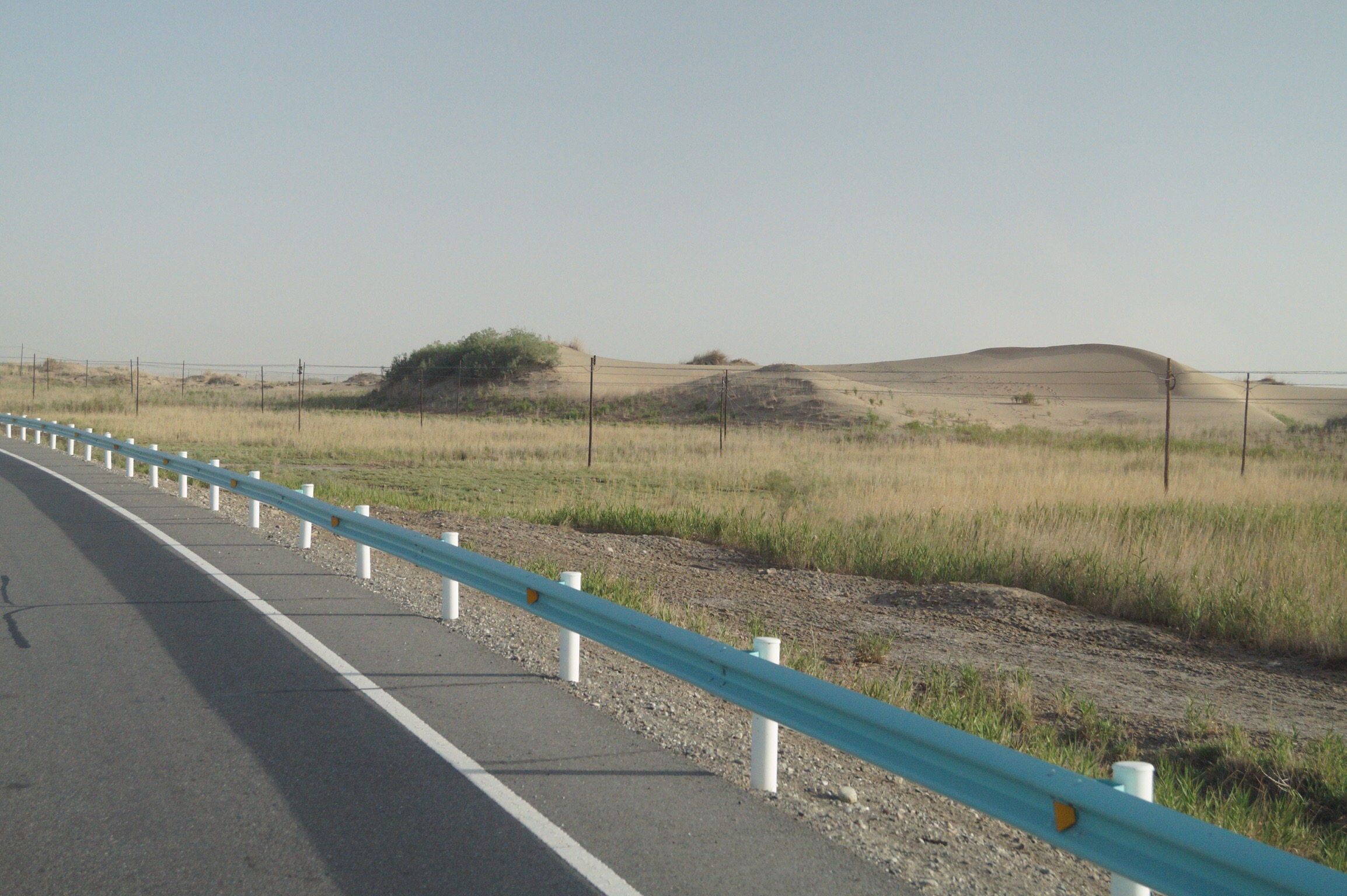
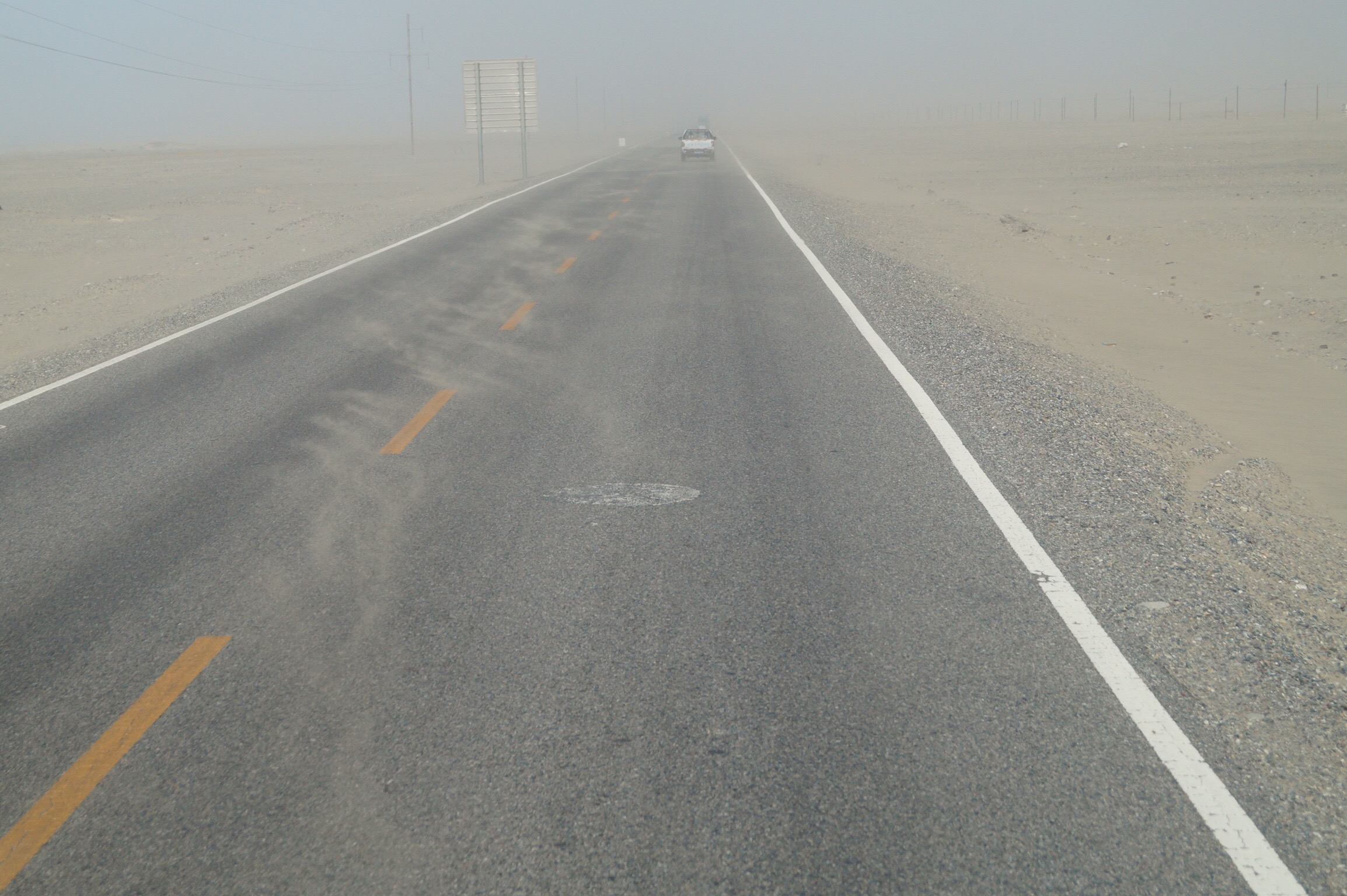
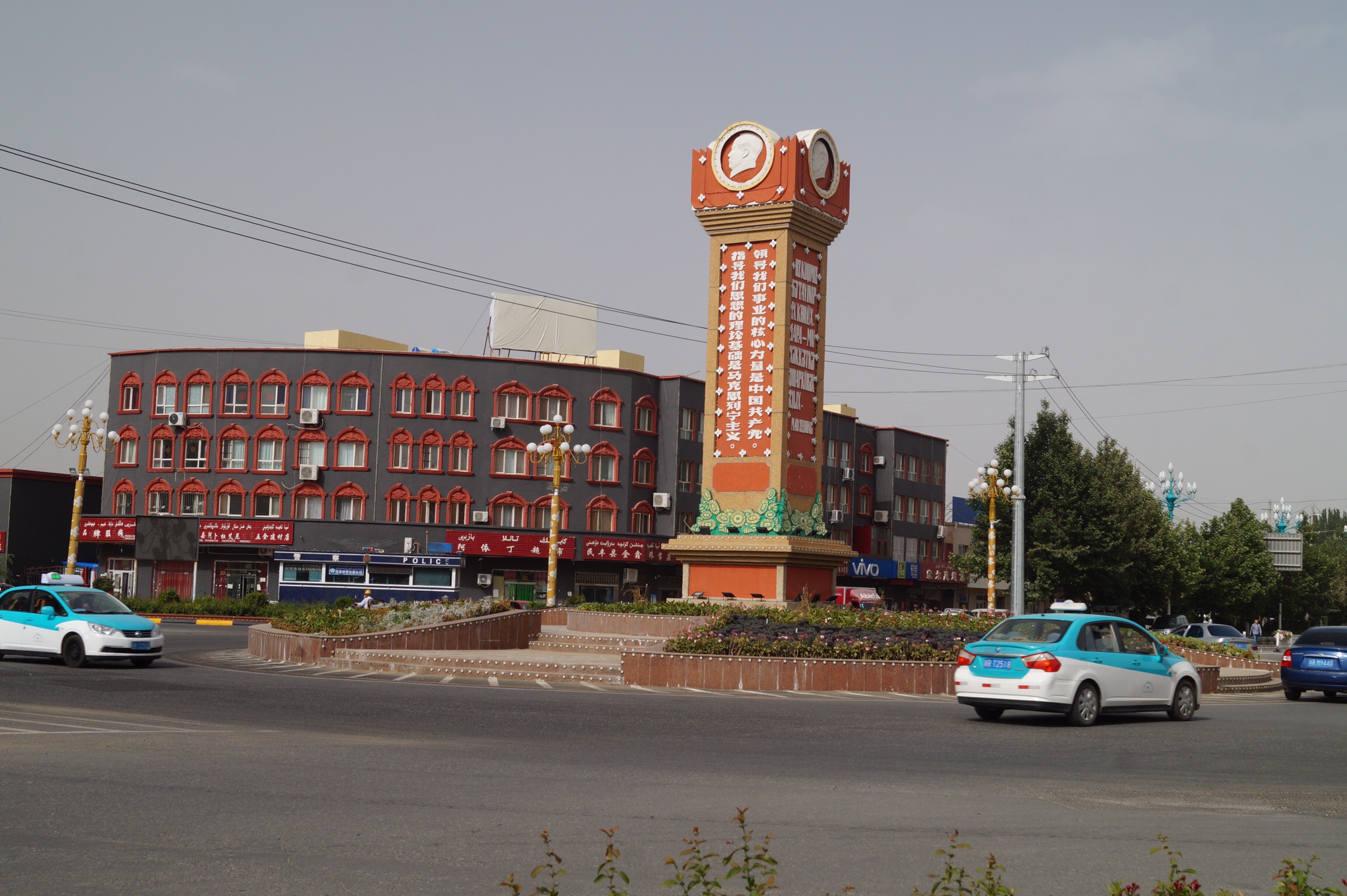
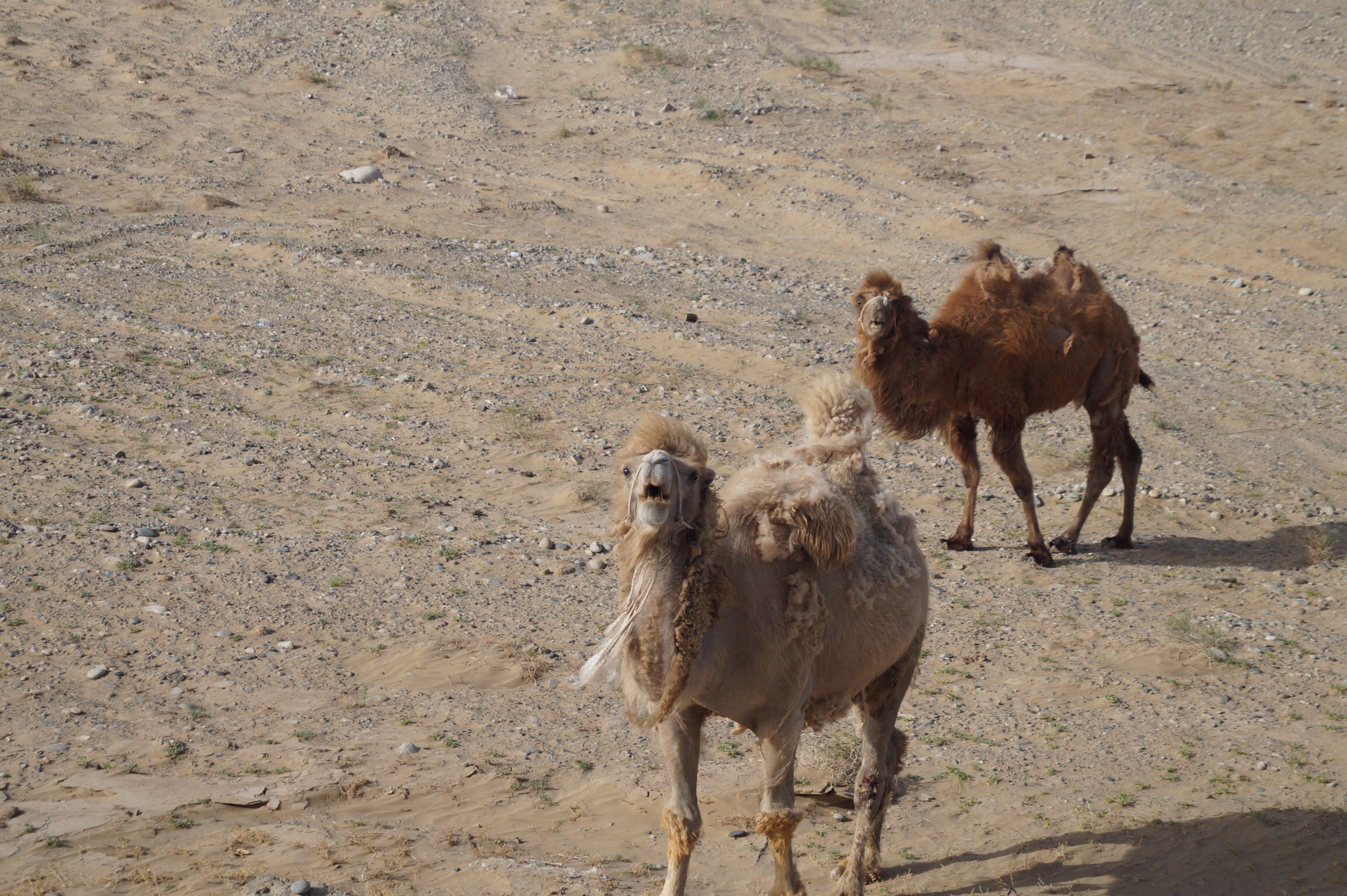
As we approached Qinghai province we started to drive up away from the desert into some rugged mountains. It didn't seem that we had driven that high but before we had noticed it we were at 3600m. The scenery was stark and beautiful and the drive continued across a large plateau.
Eventually after 6 days driving we crossed from Xinjiang province into Qinghai province. We noticed that some of the security started to relax. However we were still in a very restricted area, we were told this route had only been open to foreigners for the last two years and special permissions were still needed. Our first stop in Qinghai was an army town and we needed special permission to stay there for the night and could only stay for one night and we weren't allowed to take any photos.
While out for our evening stroll we were stopped by the police. They could speak any English and of course we could speak any Mandarin and our guide wasn't with us. It was all very friendly but took about 5 minutes as they wanted to know where we were staying that night. When then saw them back at the hotel, checking we had been telling the truth. Ever get the feeling you are been watched!
The next day was another long drive across the plateau and a high altitude desert to Golmud. Golmud is a gateway town to Tibet and I had imagined it as a rather run down transport stop. In reality it was a green, clean, modern city with hardly a policeman in sight. It was here that we were changing guides and picking up our Tibetan guide. We had a pleasant evening stroll in the warm sunlight before tucking into a wonderful Chinese meal.
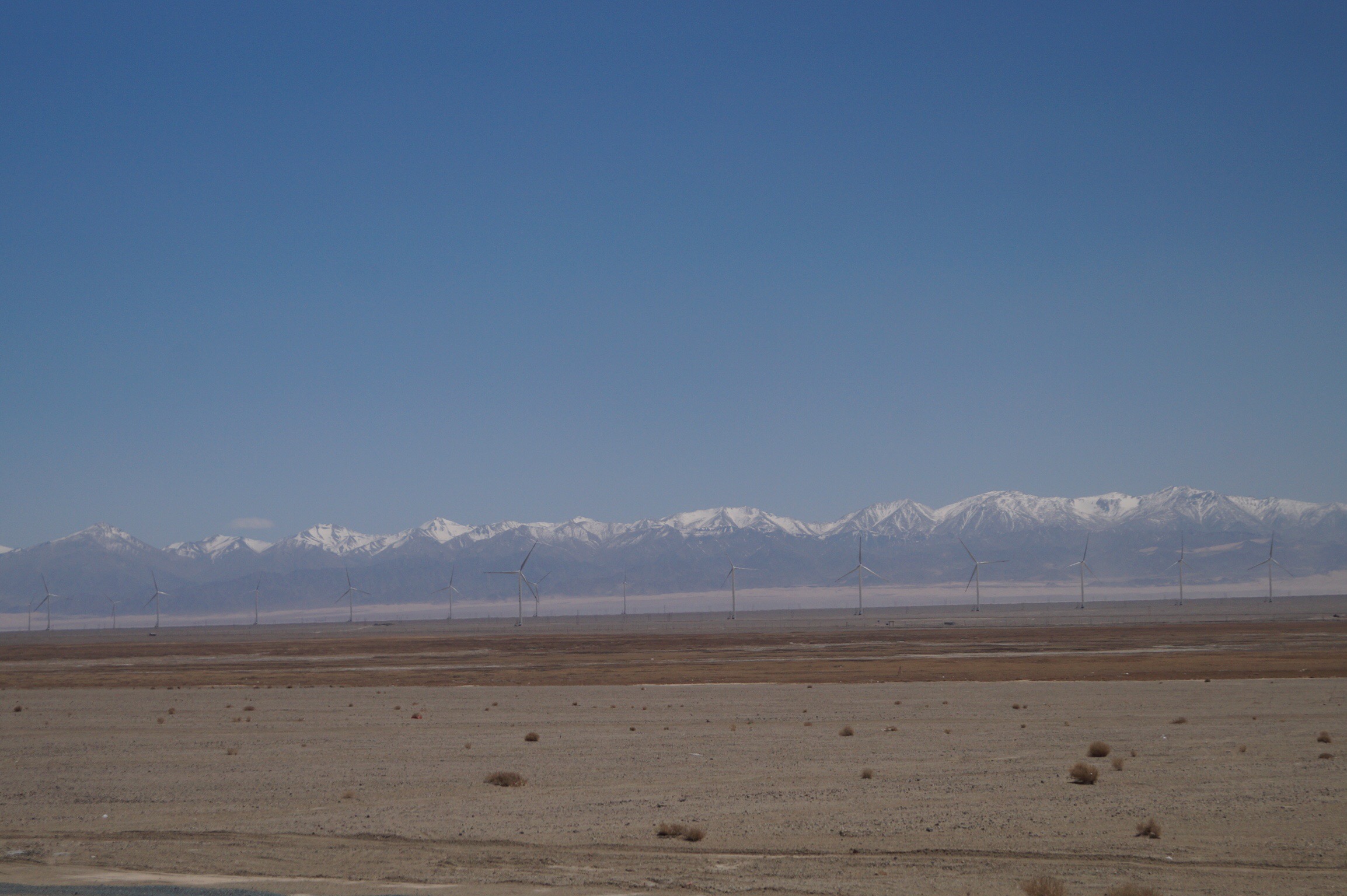
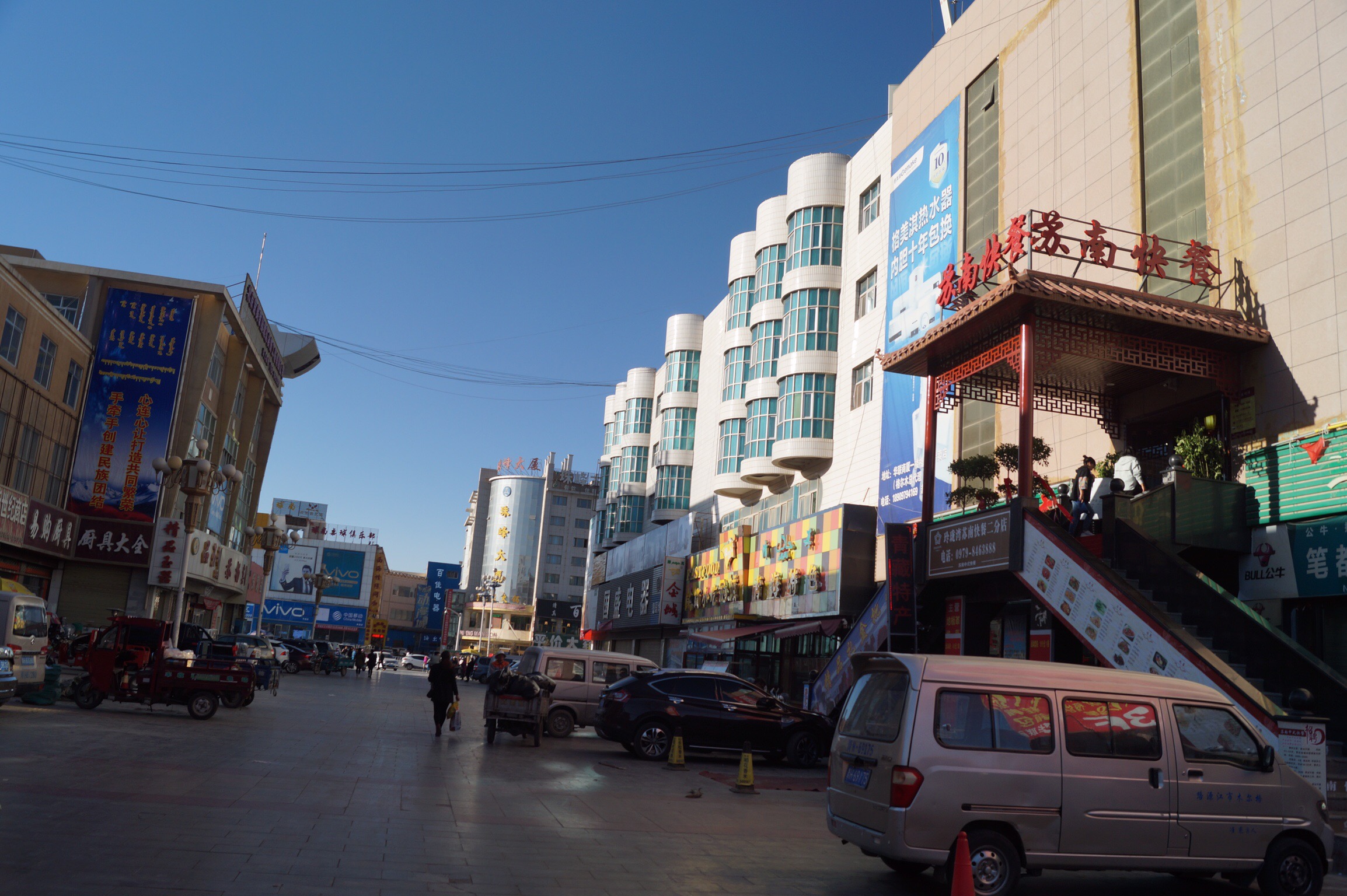
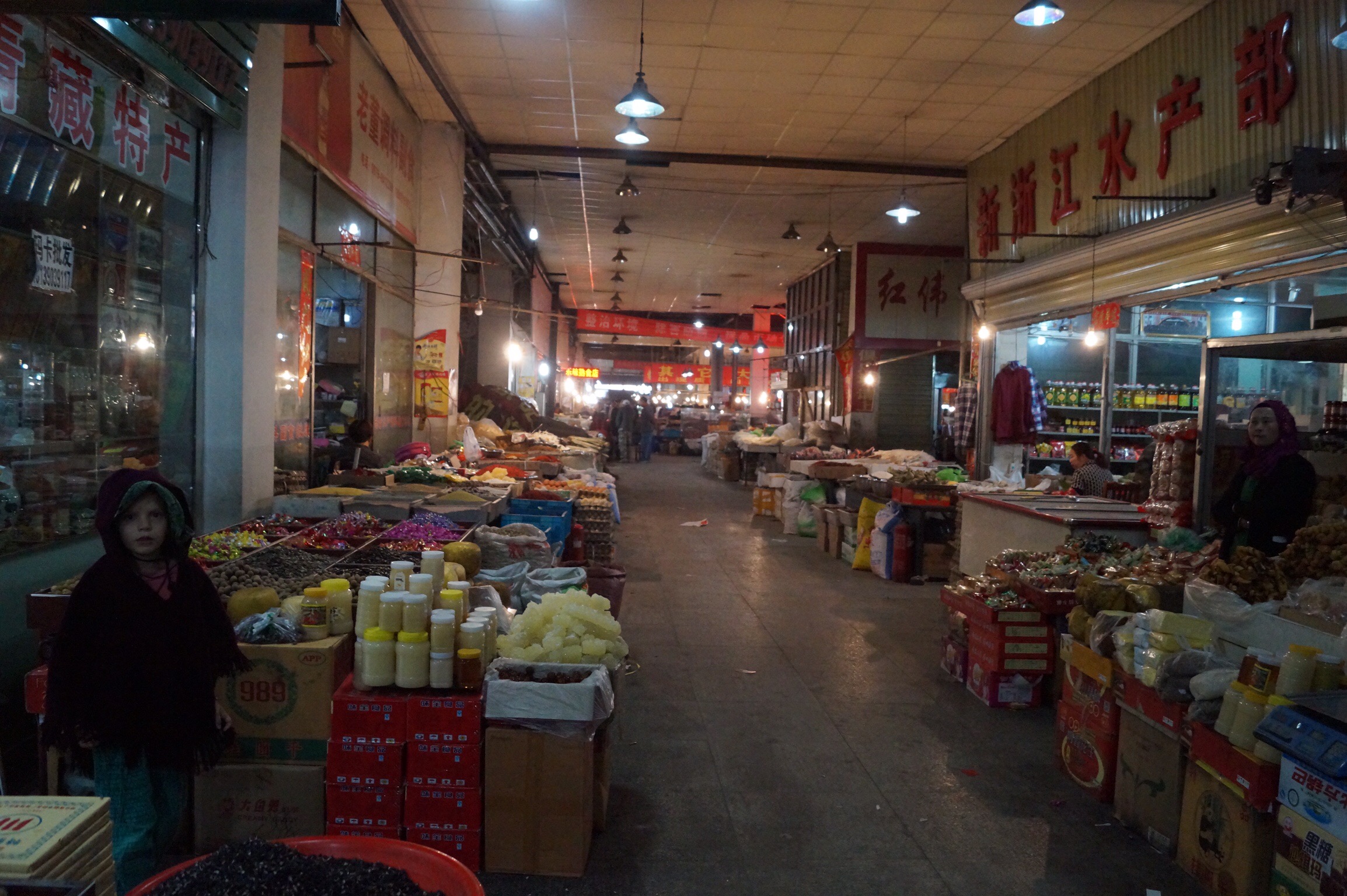
We had crossed the desert, now we were heading south away from Marco Polo's route for the high plateau of Tibet.
 In the thirteenth century Marco Polo set out on an epic journey to explore China. Whilst our trip would be significantly easier it was not without its challenges. One of which was the amount of distance we wanted to cover in our short time there. China is big, very big. We have been driving a lot each day for a week and have only crossed one province, Xinjiang. It's been a lot of desert punctuated by oasis towns as we have followed the route of the old Southern Silk Road. The roads though have been fantastic. A complete contrast to India, good tarmac and little traffic so driving has been easy.
But first I had to get into China and meet up with Gilly, Alisha and Lucy in Kashgar. They had arrived on a stress free flight from Seoul. Me entering with the truck, wasn't quite that easy. On this trip so far we have been relatively fortunate with land border crossings. Yes there have been some hassles but the longest time taken to cross such a border, before this one, was around 4 or 5 hours. Well, this one certainly beat that. It took a total of 32 hours to cross. Now to be fair it did take 30 minutes to exit Pakistan and there was three and a half hours of driving involved to negotiate the Khunjerab Pass so only 28 hours (!) was on the Chinese side
It all started up at the Khunjerab Pass at over 4600m. Here I had to clear through the border police. Little did I know all vehicles for the day had to be cleared before we drove in convoy down to the nearest town 130kms away for immigration and customs. There were only 12 vehicles on the day I went through but it still took five and a half hours to search the vehicles. First we went through a mobile x-ray unit and then the border police performed an individual search. As I watched them go through everything in the truck in front of me including all the tools in his tool box my heart sank. This would be a nightmare if they did this to my truck. It started that way too with mine as they went through my first box, even wanting to open sealed boxes to check it really was a spare oil filter in there. Not been the most patient person I decided to be the slightly difficult foreigner. Whilst they weren't exactly happy with this, and I gently backed down a couple of times, this quickly speeded things up and most of the other cupboards etc were given a cursory glance.
On arriving in Tashkorgan I first met with our guide before immigration and customs. This took another 3 hours as all the documents for everybody were checked. Then the army performed another search before we drove off to customs to drive the vehicles through another x-ray machine before leaving them parked for the night. It was gone midnight when the guide and I reached the hotel. All the restaurants were closed so we only had some bread for dinner.
The next day was a frustrating one at customs. Local customs were waiting for some paperwork from Kashgar so they could release the vehicle. I could never quite understand whether there was a problem with the paperwork in Kashgar, a problem with transferring it over the internet or what but it was a long day hanging around. Eventually at 7pm I was told it was all ok and I would be able to drive the truck out shortly. After a cursory check we left at 8pm. It was too late to drive any further but at least we were able to get a celebratory beer and a decent meal.
We were on the road early the next morning as I was keen to meet up with the family in Kashgar. We also had other paperwork to sort out there too. It was a lovely drive down to Kashgar through the mountains. We went over another 4000m pass and passed Lake Karakol. However it was great to arrive in Kashgar and be reunited with everyone. Let's hope we will all complete the rest of the trip together.
In the thirteenth century Marco Polo set out on an epic journey to explore China. Whilst our trip would be significantly easier it was not without its challenges. One of which was the amount of distance we wanted to cover in our short time there. China is big, very big. We have been driving a lot each day for a week and have only crossed one province, Xinjiang. It's been a lot of desert punctuated by oasis towns as we have followed the route of the old Southern Silk Road. The roads though have been fantastic. A complete contrast to India, good tarmac and little traffic so driving has been easy.
But first I had to get into China and meet up with Gilly, Alisha and Lucy in Kashgar. They had arrived on a stress free flight from Seoul. Me entering with the truck, wasn't quite that easy. On this trip so far we have been relatively fortunate with land border crossings. Yes there have been some hassles but the longest time taken to cross such a border, before this one, was around 4 or 5 hours. Well, this one certainly beat that. It took a total of 32 hours to cross. Now to be fair it did take 30 minutes to exit Pakistan and there was three and a half hours of driving involved to negotiate the Khunjerab Pass so only 28 hours (!) was on the Chinese side
It all started up at the Khunjerab Pass at over 4600m. Here I had to clear through the border police. Little did I know all vehicles for the day had to be cleared before we drove in convoy down to the nearest town 130kms away for immigration and customs. There were only 12 vehicles on the day I went through but it still took five and a half hours to search the vehicles. First we went through a mobile x-ray unit and then the border police performed an individual search. As I watched them go through everything in the truck in front of me including all the tools in his tool box my heart sank. This would be a nightmare if they did this to my truck. It started that way too with mine as they went through my first box, even wanting to open sealed boxes to check it really was a spare oil filter in there. Not been the most patient person I decided to be the slightly difficult foreigner. Whilst they weren't exactly happy with this, and I gently backed down a couple of times, this quickly speeded things up and most of the other cupboards etc were given a cursory glance.
On arriving in Tashkorgan I first met with our guide before immigration and customs. This took another 3 hours as all the documents for everybody were checked. Then the army performed another search before we drove off to customs to drive the vehicles through another x-ray machine before leaving them parked for the night. It was gone midnight when the guide and I reached the hotel. All the restaurants were closed so we only had some bread for dinner.
The next day was a frustrating one at customs. Local customs were waiting for some paperwork from Kashgar so they could release the vehicle. I could never quite understand whether there was a problem with the paperwork in Kashgar, a problem with transferring it over the internet or what but it was a long day hanging around. Eventually at 7pm I was told it was all ok and I would be able to drive the truck out shortly. After a cursory check we left at 8pm. It was too late to drive any further but at least we were able to get a celebratory beer and a decent meal.
We were on the road early the next morning as I was keen to meet up with the family in Kashgar. We also had other paperwork to sort out there too. It was a lovely drive down to Kashgar through the mountains. We went over another 4000m pass and passed Lake Karakol. However it was great to arrive in Kashgar and be reunited with everyone. Let's hope we will all complete the rest of the trip together.

 After all the delays at the border I was concerned how long it would take to get my Chinese driving license, Chinese number plate, insurance and vehicle certification. To my surprise it all went fantastically quickly and smoothly. Neither the truck nor I even needed to visit the Traffic Administration and our new guide telephoned me to say she would have it all with her when we set off the following morning.
We will be returning to Kashgar at the end of our China tour so we didn't spend any time sight seeing. The town looked interesting though with its Uighur people and their Muslim traditions. Lamb sat roasting at the side of the street and men with skull caps were enjoying the long evening playing cards.
After all the delays at the border I was concerned how long it would take to get my Chinese driving license, Chinese number plate, insurance and vehicle certification. To my surprise it all went fantastically quickly and smoothly. Neither the truck nor I even needed to visit the Traffic Administration and our new guide telephoned me to say she would have it all with her when we set off the following morning.
We will be returning to Kashgar at the end of our China tour so we didn't spend any time sight seeing. The town looked interesting though with its Uighur people and their Muslim traditions. Lamb sat roasting at the side of the street and men with skull caps were enjoying the long evening playing cards.

 Mind you the most notable feature were the amount of security and police on the street. All there for the safety of the local population. I had experienced this at the border but was shocked to see it so much in Kashgar, There were police posts on every corner and we even had an armoured personnel carrier parked in front of the hotel. To get into a bank or even some shops you had to show identification and I was told if we needed to buy fuel in town we would have to register at the police station.
Driving across the Taklamakan Desert the security continued. There were police stops with document checks and searches at regular intervals and the security situation was the same in every small town. We even had to show identification to enter a small park. All the fuel stations were heavily barricaded and guarded by police with guns. You needed to show identification to get in (fortunately our Chinese guides ID worked) and only the driver was allowed in the fuel station!
Mind you the most notable feature were the amount of security and police on the street. All there for the safety of the local population. I had experienced this at the border but was shocked to see it so much in Kashgar, There were police posts on every corner and we even had an armoured personnel carrier parked in front of the hotel. To get into a bank or even some shops you had to show identification and I was told if we needed to buy fuel in town we would have to register at the police station.
Driving across the Taklamakan Desert the security continued. There were police stops with document checks and searches at regular intervals and the security situation was the same in every small town. We even had to show identification to enter a small park. All the fuel stations were heavily barricaded and guarded by police with guns. You needed to show identification to get in (fortunately our Chinese guides ID worked) and only the driver was allowed in the fuel station!
 Arriving in the first town we were told we had to register with the local police first before checking into the hotel. We were having to stay in hotels as wild camping was prohibited and even which hotel we had to stay in was prescribed for us. Our guide did a great job getting us through all the checkpoints (especially with me being my usual, need to obey self) and in making all the arrangements for our accommodation. The police were not too happy that we were staying in Kargalik, not that much seemed to be happening, and even rang our guide to check we had left the following morning.
We headed further along the Silk Road to one of its most important towns Hotan. This had been an important crossroads for trade and this still thrived in the bazaar where we bought some fantastic dates. A lot of the old town had been pulled down and everywhere we went new buildings were going up. It was apparent just how much new building there has been in the last 20 years.
Arriving in the first town we were told we had to register with the local police first before checking into the hotel. We were having to stay in hotels as wild camping was prohibited and even which hotel we had to stay in was prescribed for us. Our guide did a great job getting us through all the checkpoints (especially with me being my usual, need to obey self) and in making all the arrangements for our accommodation. The police were not too happy that we were staying in Kargalik, not that much seemed to be happening, and even rang our guide to check we had left the following morning.
We headed further along the Silk Road to one of its most important towns Hotan. This had been an important crossroads for trade and this still thrived in the bazaar where we bought some fantastic dates. A lot of the old town had been pulled down and everywhere we went new buildings were going up. It was apparent just how much new building there has been in the last 20 years.



 Leaving Hotan we headed further into the desert. In front of us were rolling sand dunes. Every so often these would be punctuated with small green oasis towns. In some of these we would stop and spend the night as the driving distances were long. Each day at the end of a long drive we would find time to wander the streets. Whilst there was nothing major to see it was interesting watching daily life and sampling some of the local foods.
Leaving Hotan we headed further into the desert. In front of us were rolling sand dunes. Every so often these would be punctuated with small green oasis towns. In some of these we would stop and spend the night as the driving distances were long. Each day at the end of a long drive we would find time to wander the streets. Whilst there was nothing major to see it was interesting watching daily life and sampling some of the local foods.



 As we approached Qinghai province we started to drive up away from the desert into some rugged mountains. It didn't seem that we had driven that high but before we had noticed it we were at 3600m. The scenery was stark and beautiful and the drive continued across a large plateau.
Eventually after 6 days driving we crossed from Xinjiang province into Qinghai province. We noticed that some of the security started to relax. However we were still in a very restricted area, we were told this route had only been open to foreigners for the last two years and special permissions were still needed. Our first stop in Qinghai was an army town and we needed special permission to stay there for the night and could only stay for one night and we weren't allowed to take any photos.
While out for our evening stroll we were stopped by the police. They could speak any English and of course we could speak any Mandarin and our guide wasn't with us. It was all very friendly but took about 5 minutes as they wanted to know where we were staying that night. When then saw them back at the hotel, checking we had been telling the truth. Ever get the feeling you are been watched!
The next day was another long drive across the plateau and a high altitude desert to Golmud. Golmud is a gateway town to Tibet and I had imagined it as a rather run down transport stop. In reality it was a green, clean, modern city with hardly a policeman in sight. It was here that we were changing guides and picking up our Tibetan guide. We had a pleasant evening stroll in the warm sunlight before tucking into a wonderful Chinese meal.
As we approached Qinghai province we started to drive up away from the desert into some rugged mountains. It didn't seem that we had driven that high but before we had noticed it we were at 3600m. The scenery was stark and beautiful and the drive continued across a large plateau.
Eventually after 6 days driving we crossed from Xinjiang province into Qinghai province. We noticed that some of the security started to relax. However we were still in a very restricted area, we were told this route had only been open to foreigners for the last two years and special permissions were still needed. Our first stop in Qinghai was an army town and we needed special permission to stay there for the night and could only stay for one night and we weren't allowed to take any photos.
While out for our evening stroll we were stopped by the police. They could speak any English and of course we could speak any Mandarin and our guide wasn't with us. It was all very friendly but took about 5 minutes as they wanted to know where we were staying that night. When then saw them back at the hotel, checking we had been telling the truth. Ever get the feeling you are been watched!
The next day was another long drive across the plateau and a high altitude desert to Golmud. Golmud is a gateway town to Tibet and I had imagined it as a rather run down transport stop. In reality it was a green, clean, modern city with hardly a policeman in sight. It was here that we were changing guides and picking up our Tibetan guide. We had a pleasant evening stroll in the warm sunlight before tucking into a wonderful Chinese meal.


 We had crossed the desert, now we were heading south away from Marco Polo's route for the high plateau of Tibet.
We had crossed the desert, now we were heading south away from Marco Polo's route for the high plateau of Tibet. 
